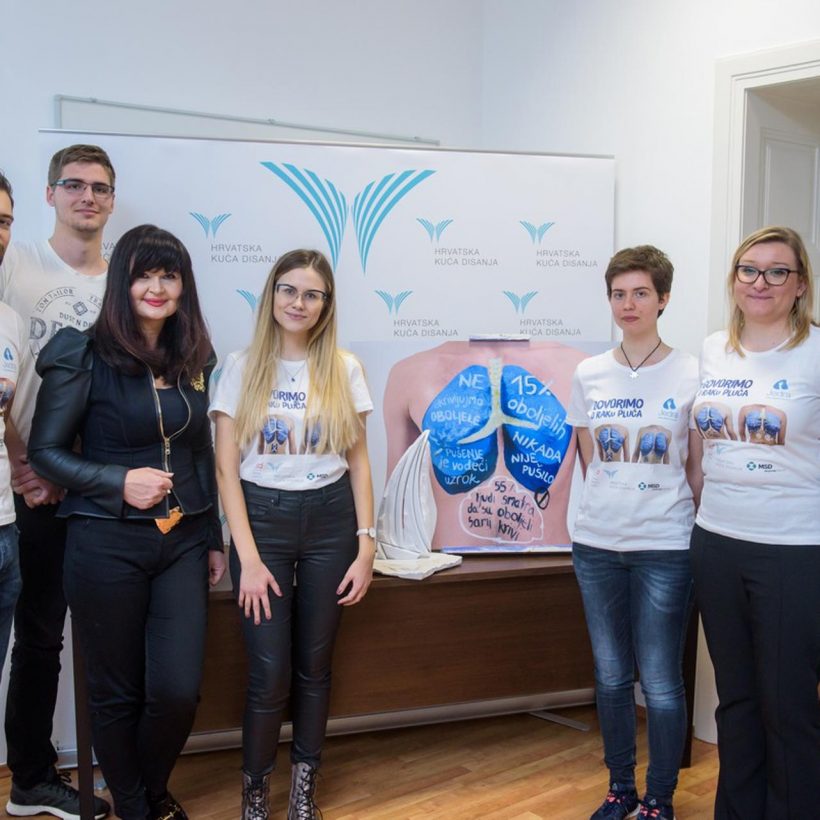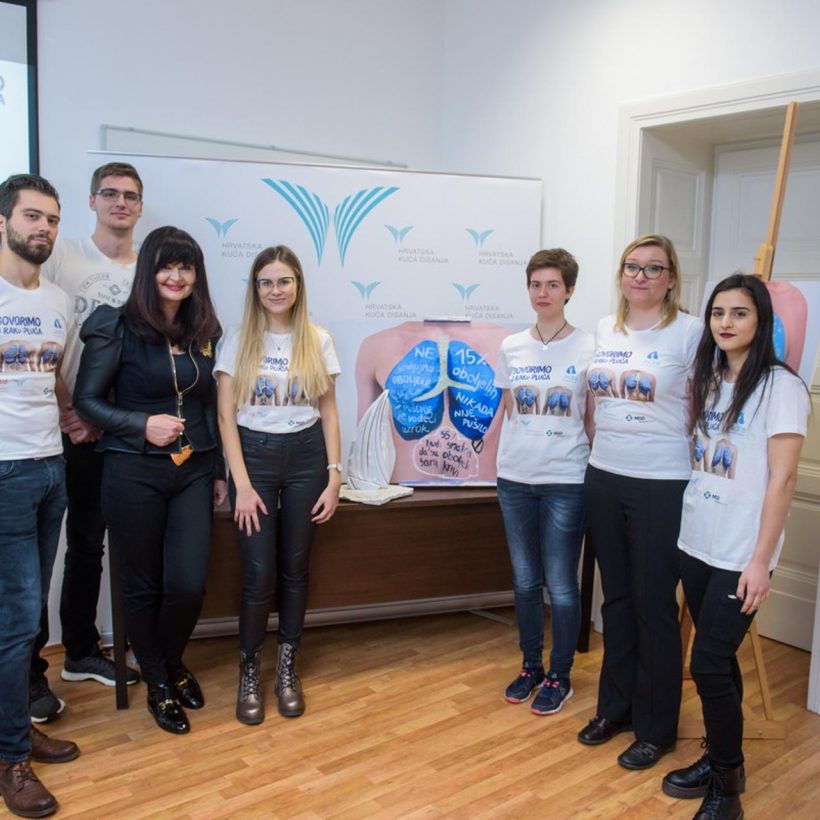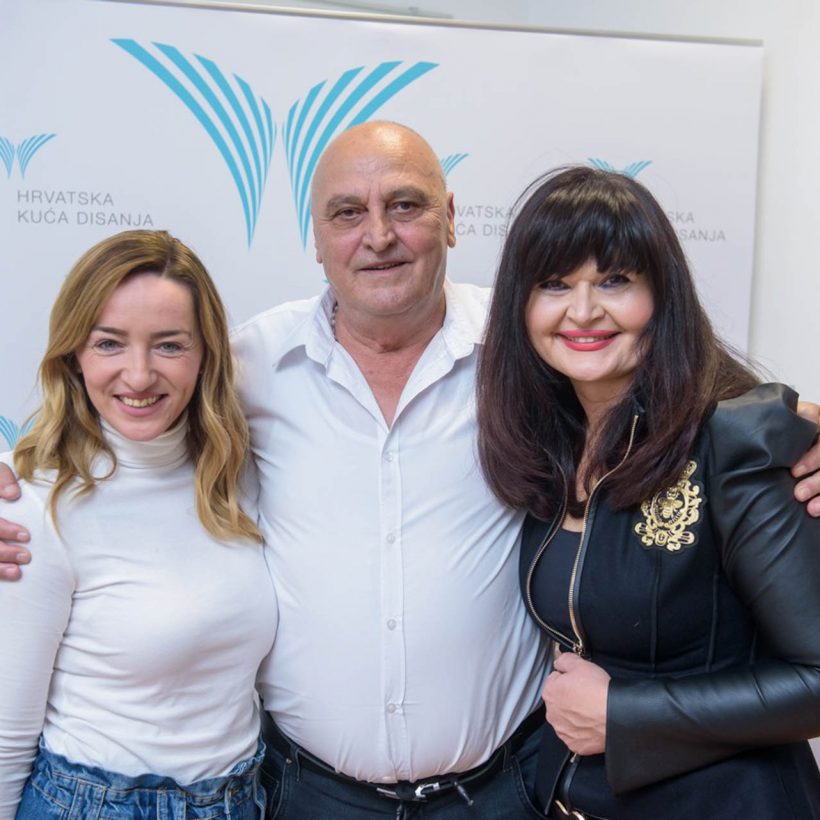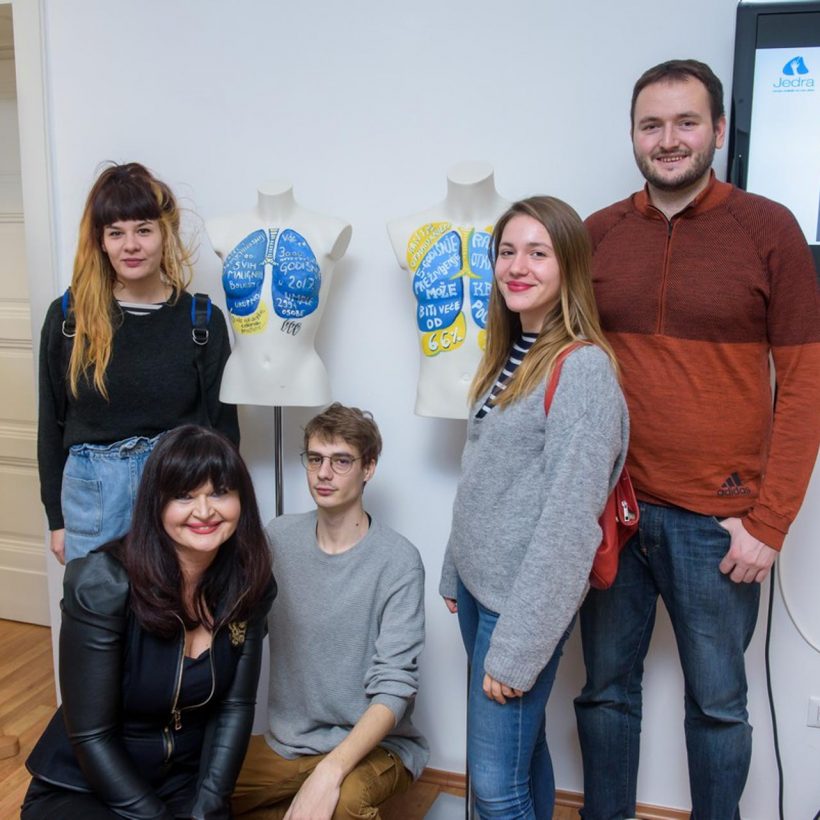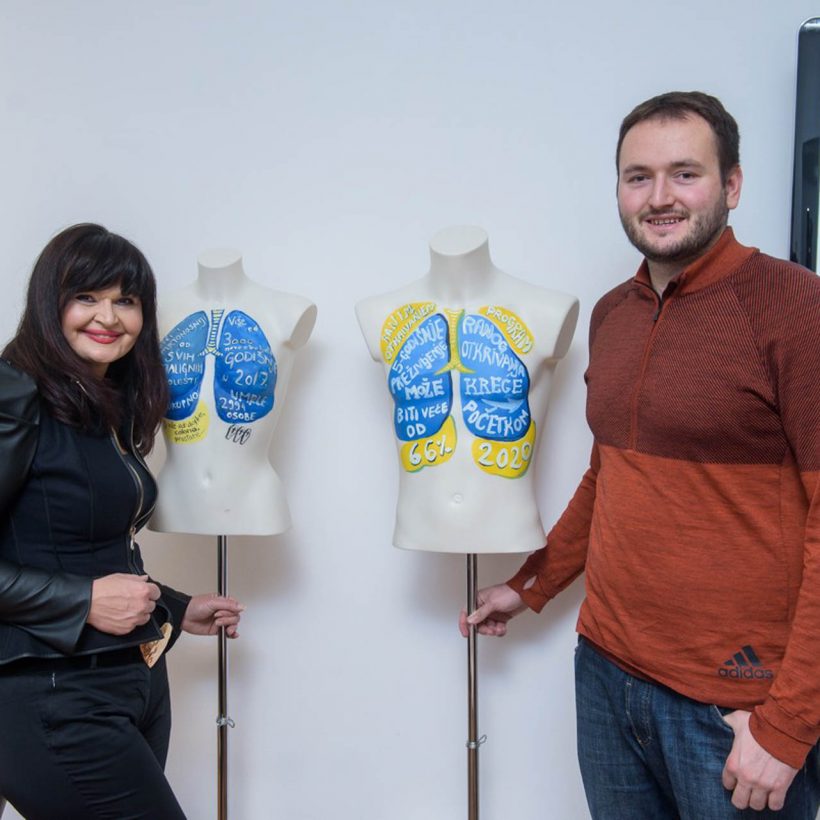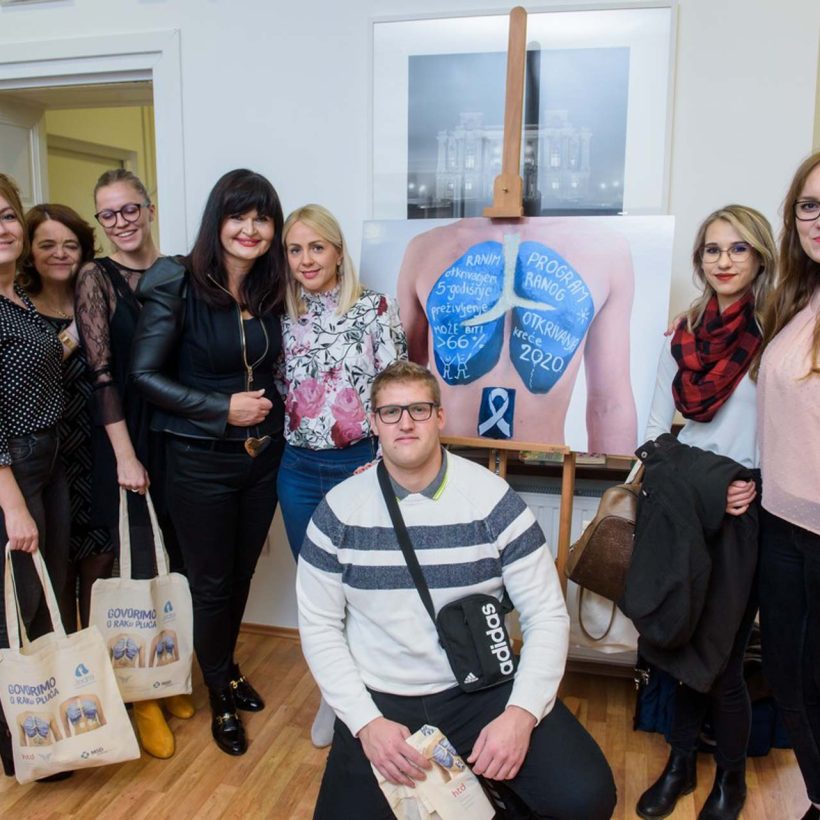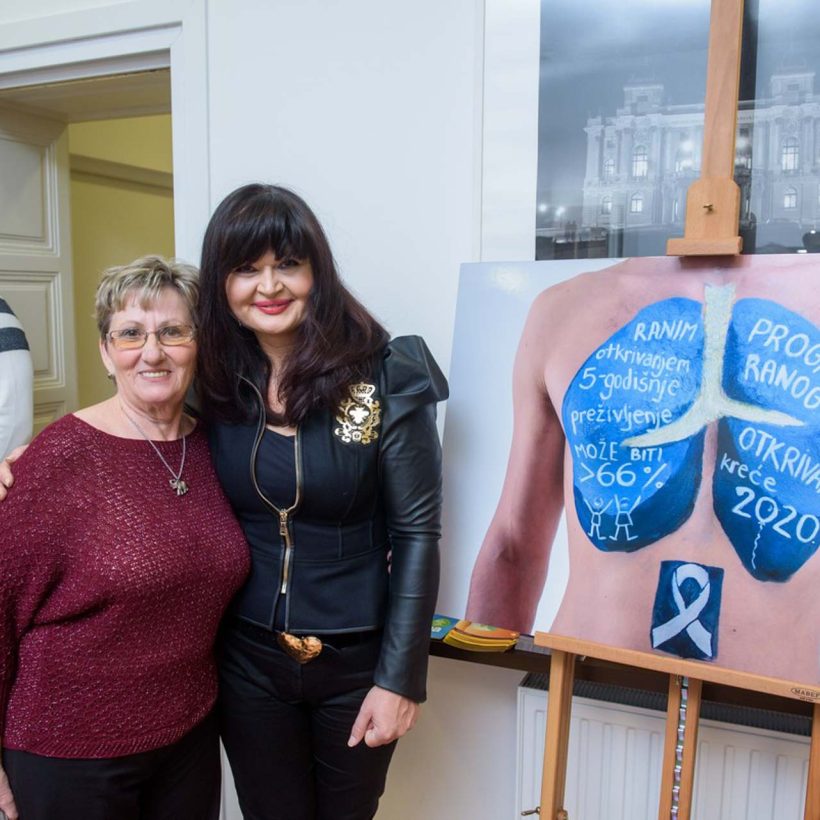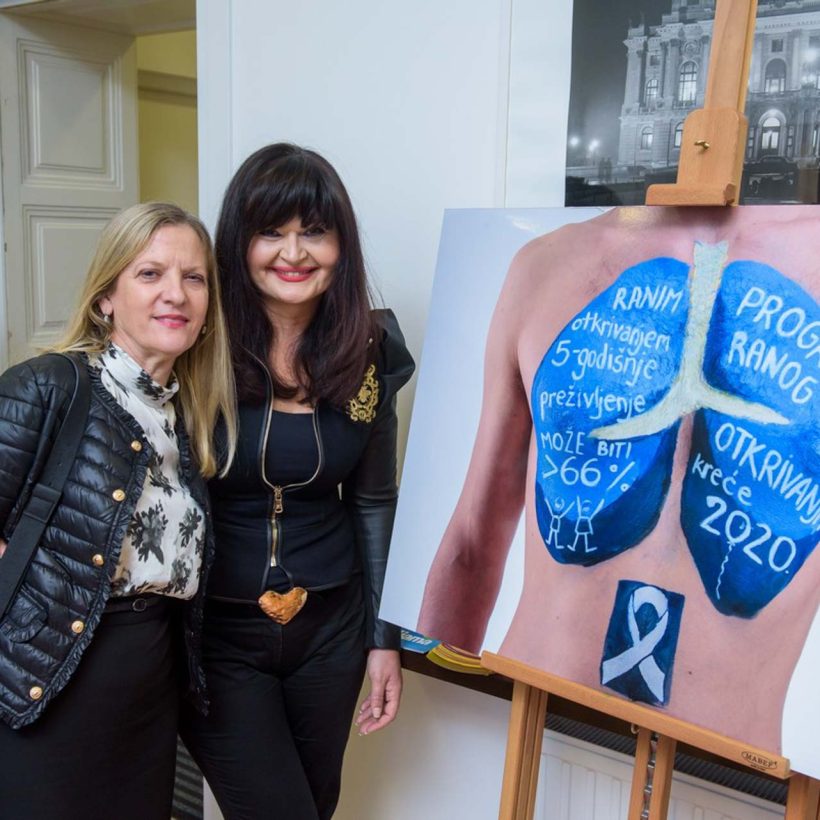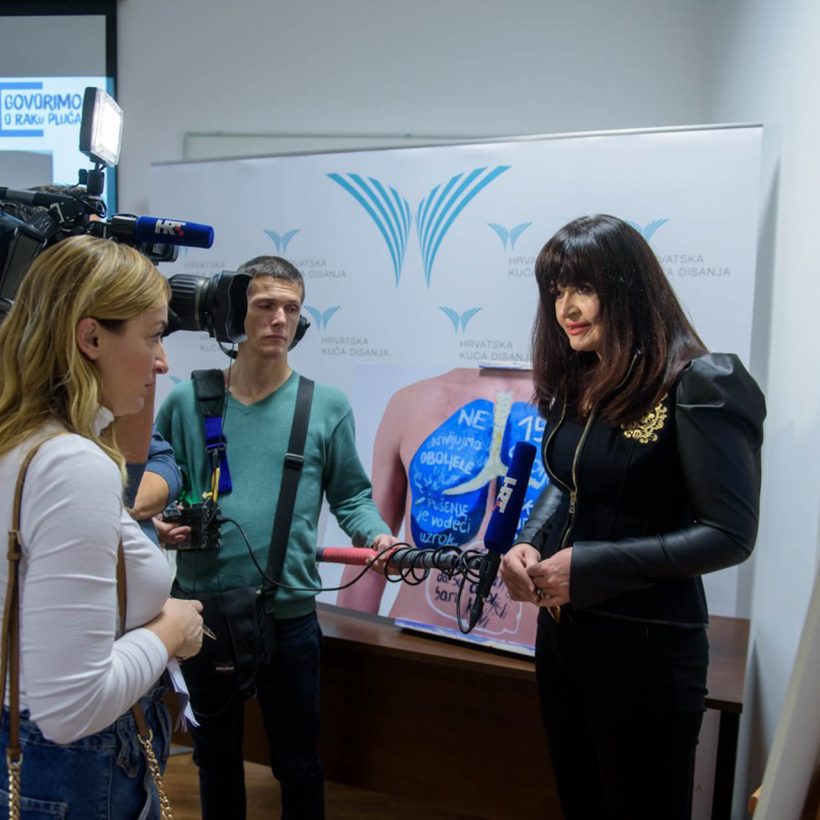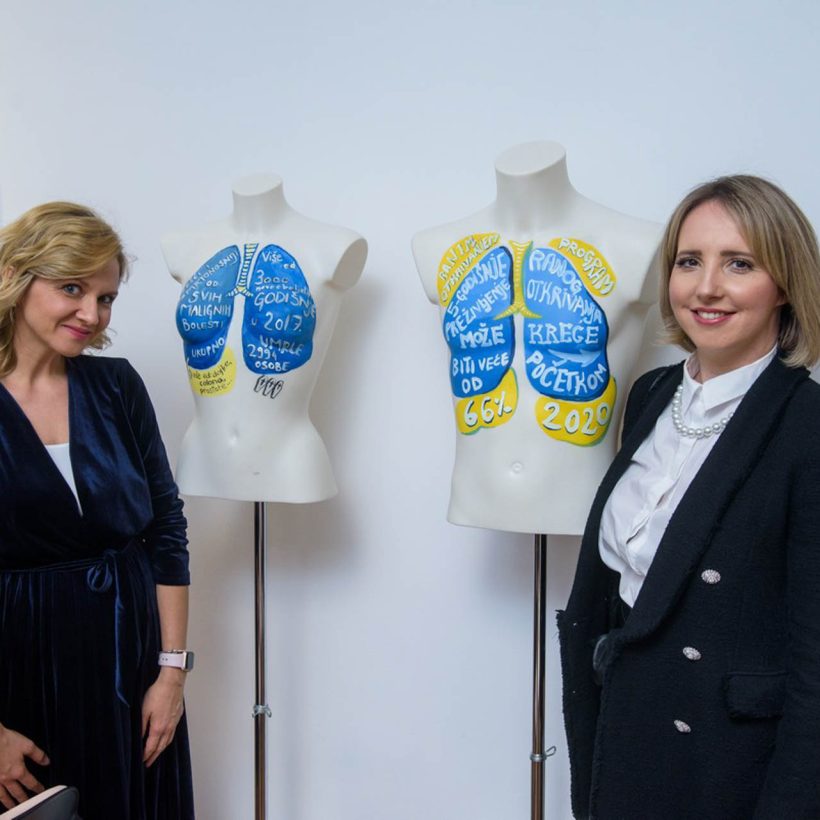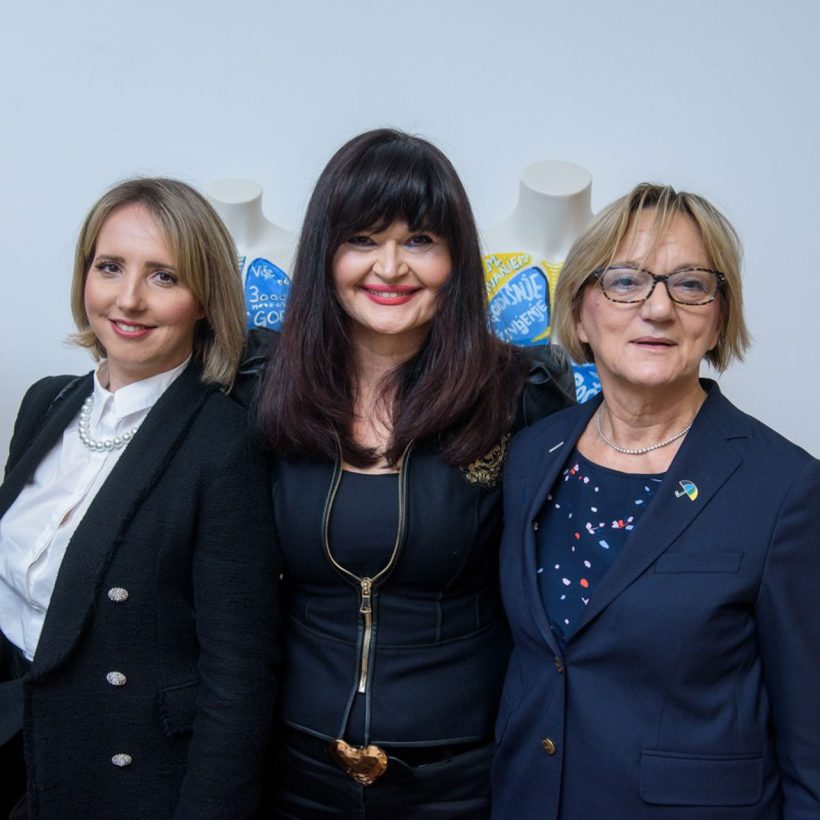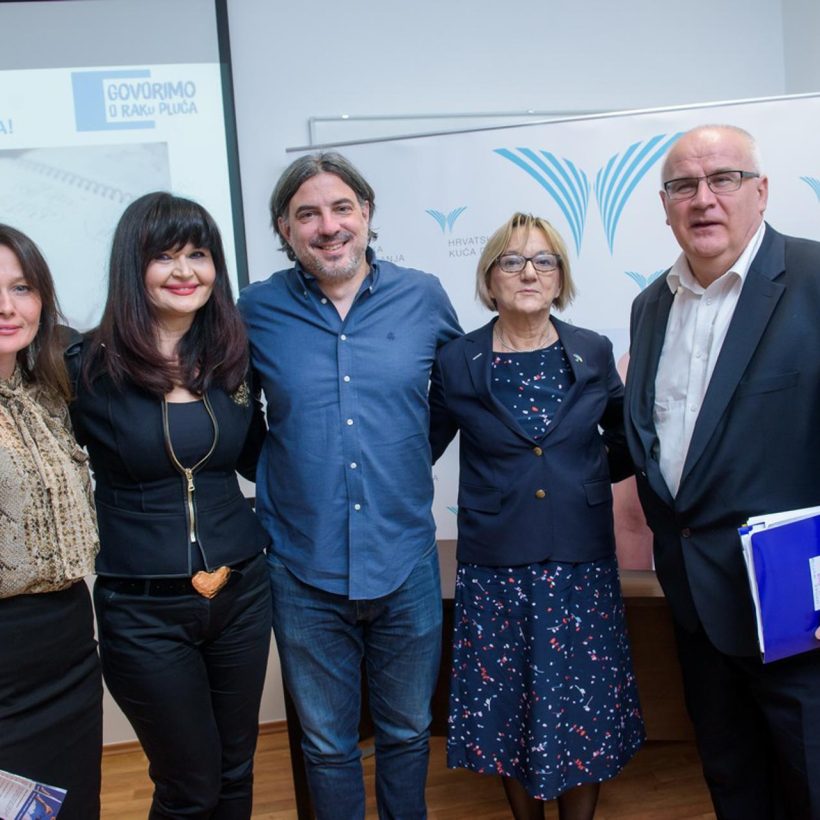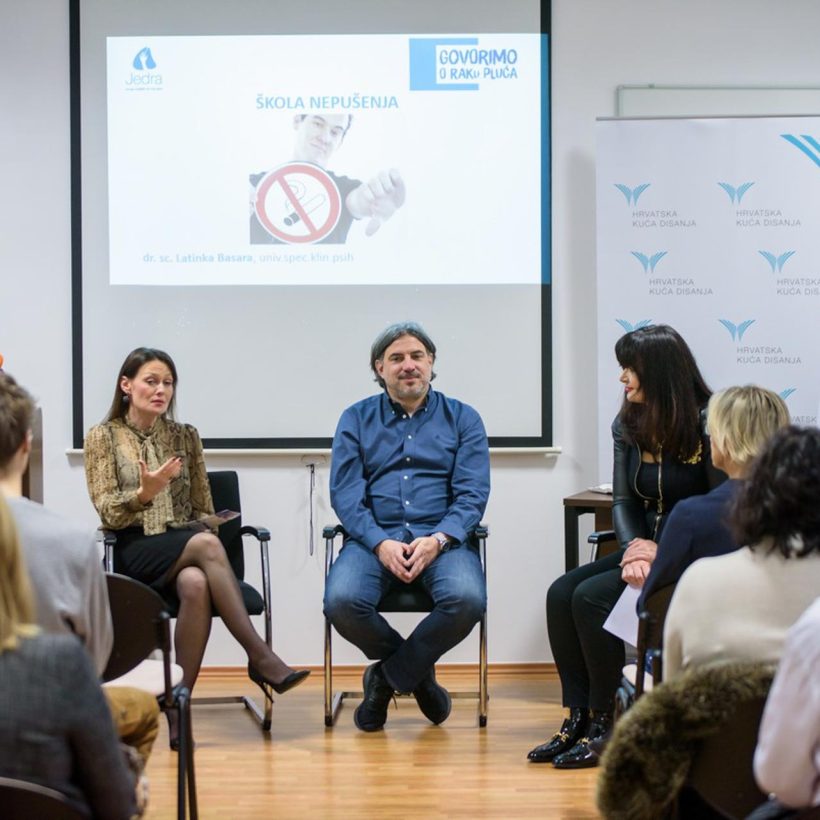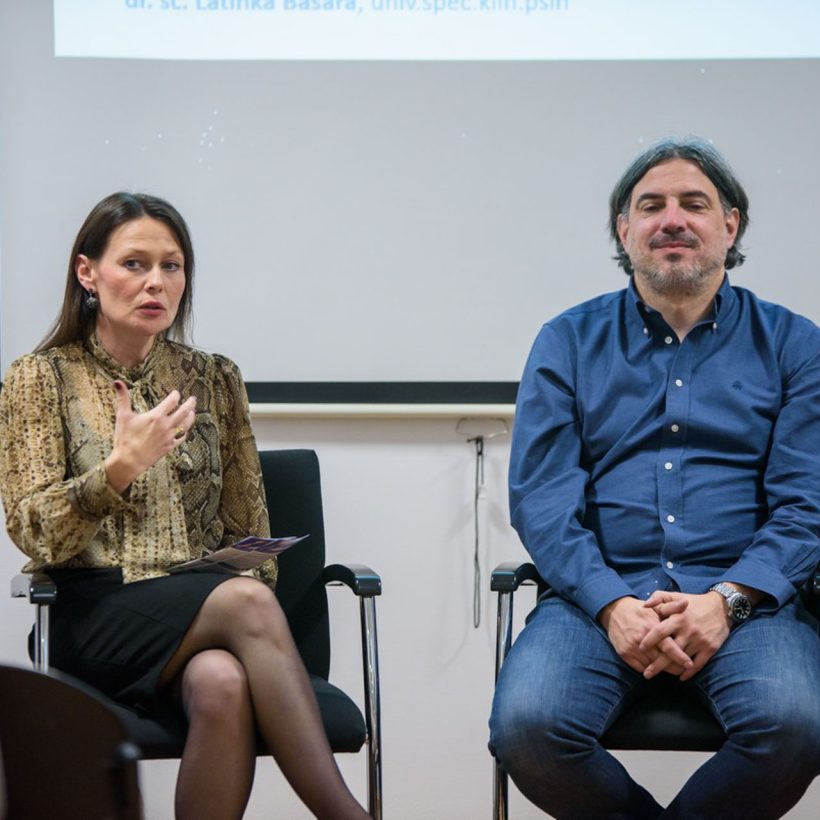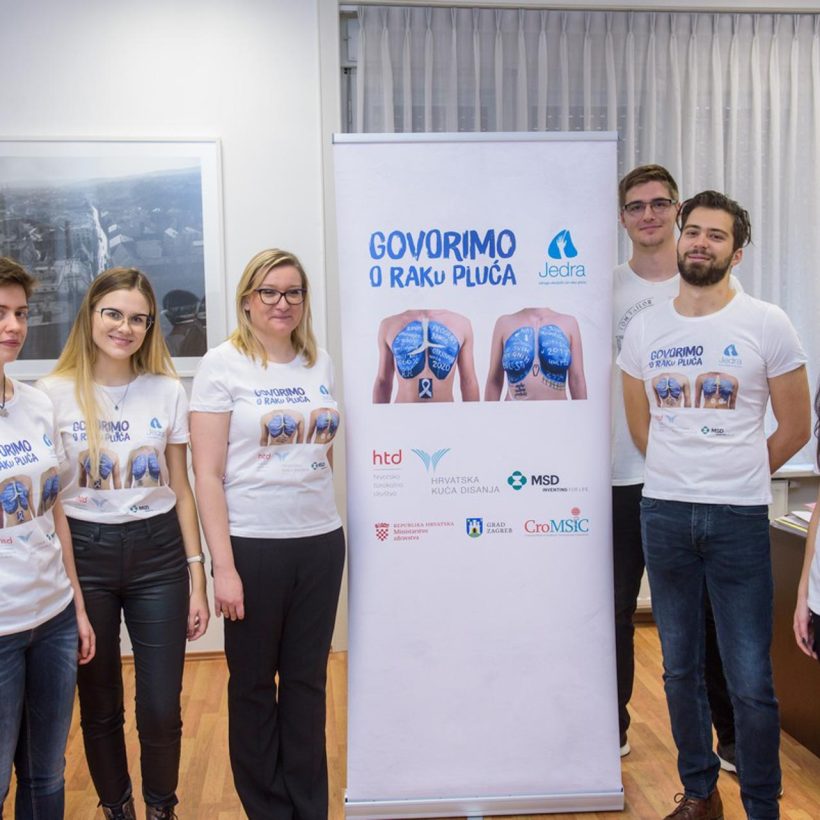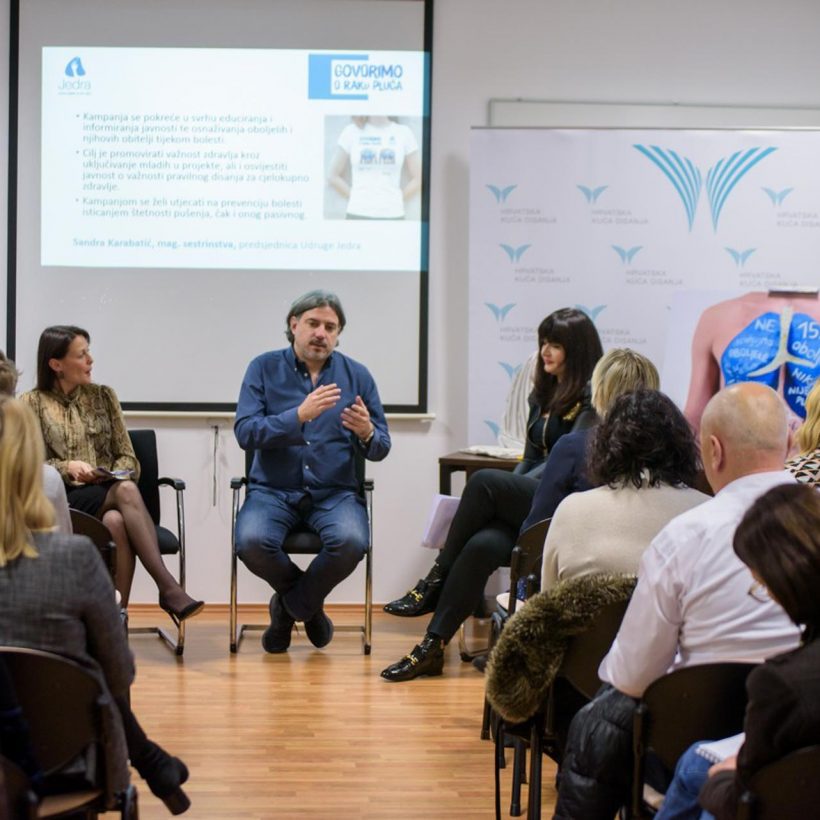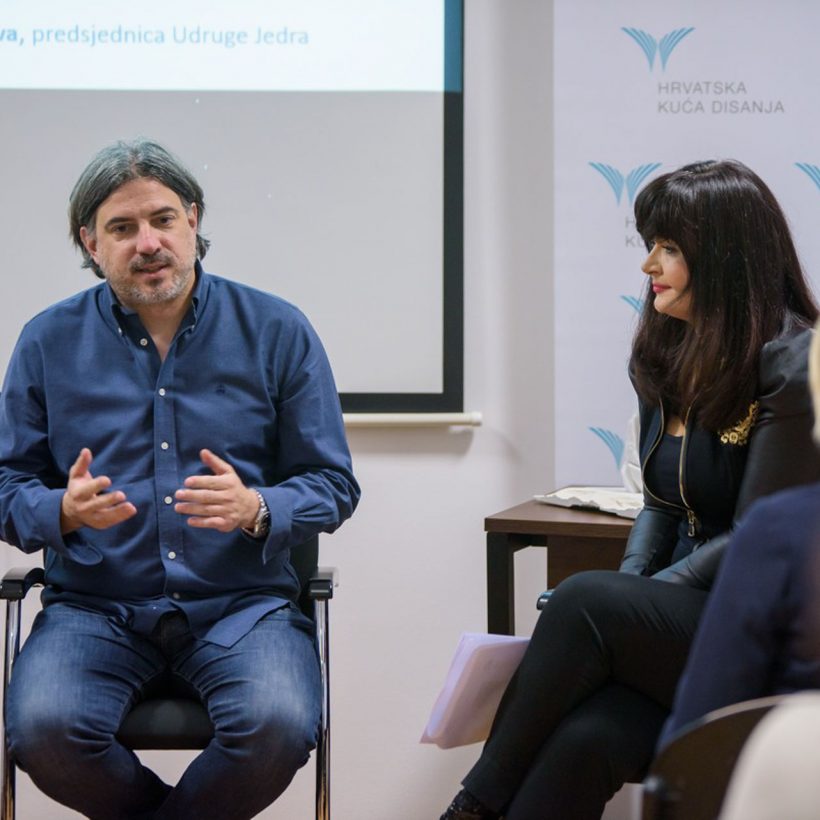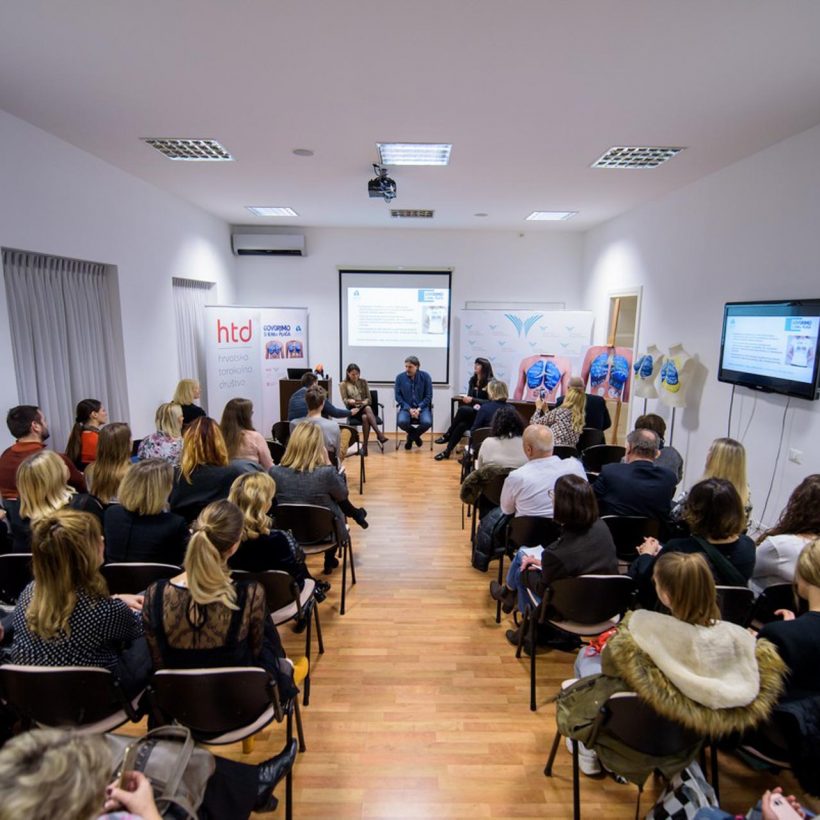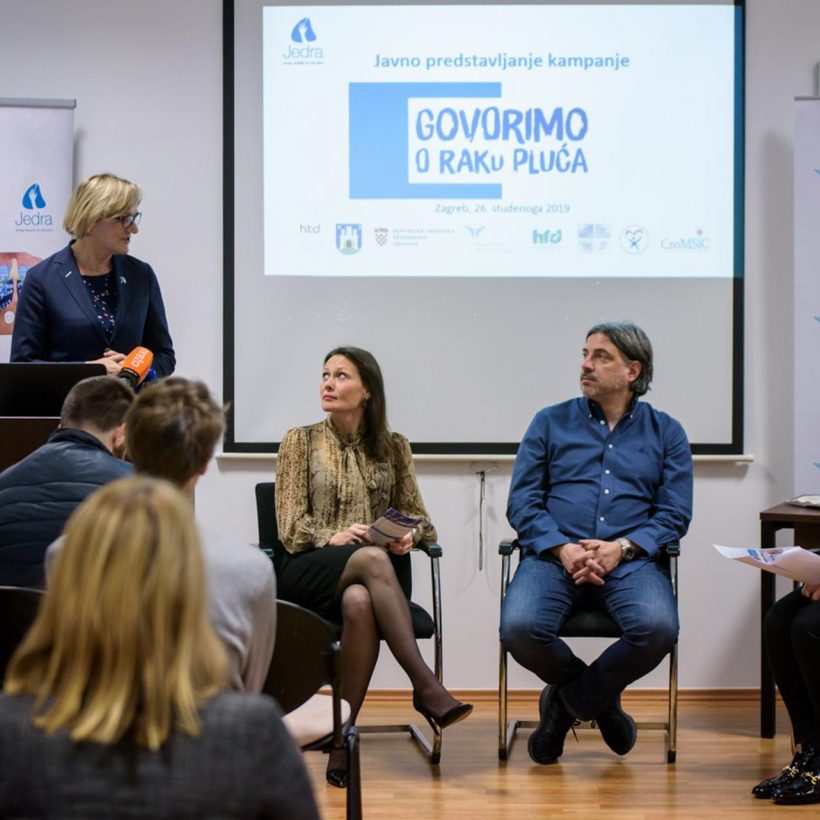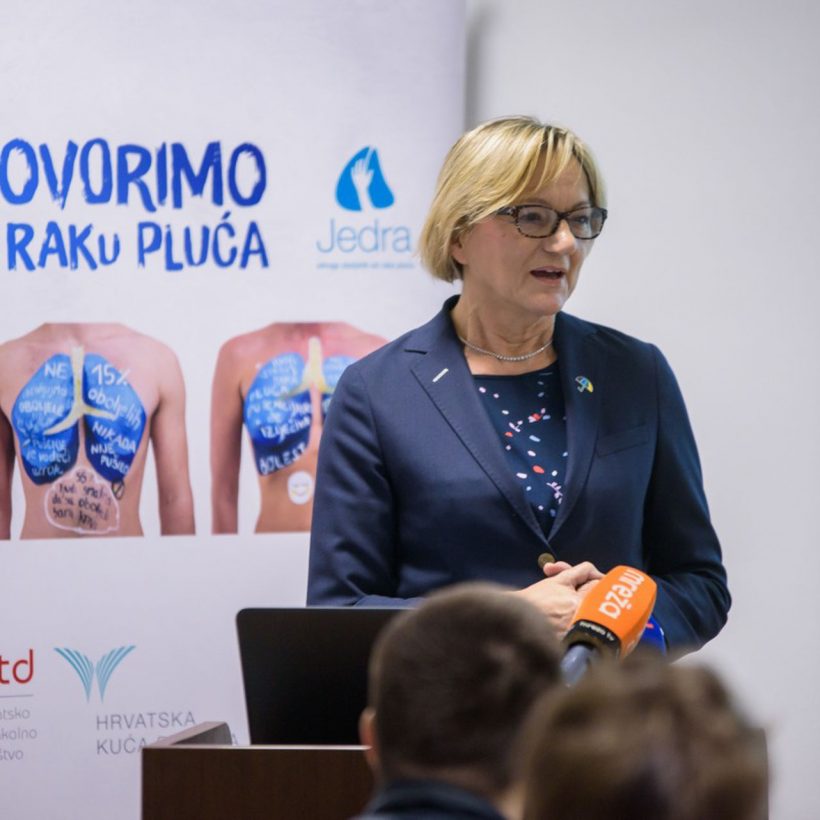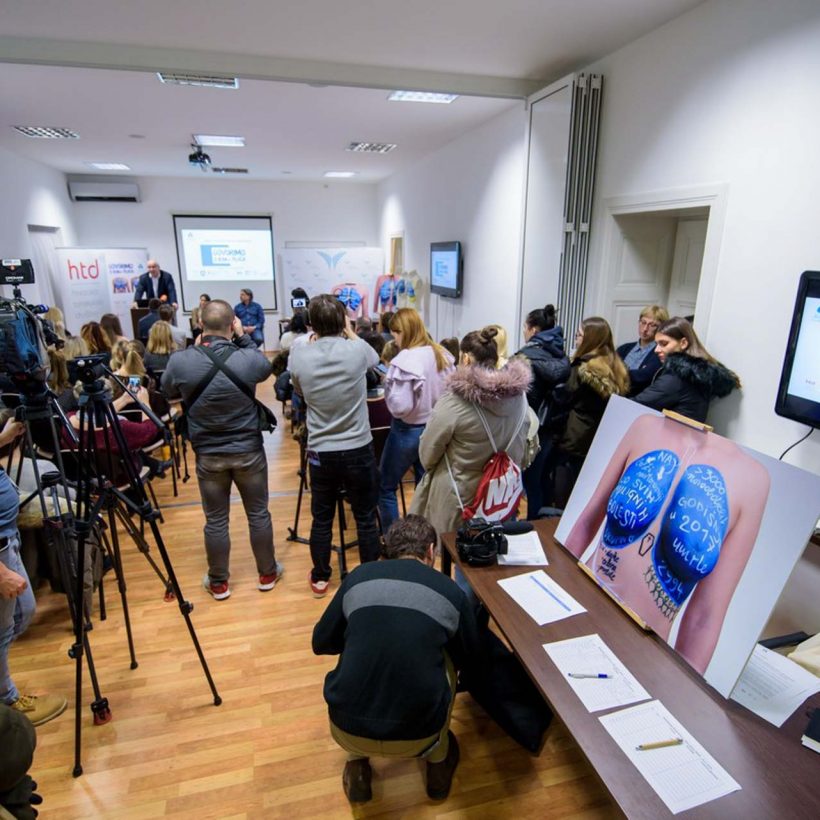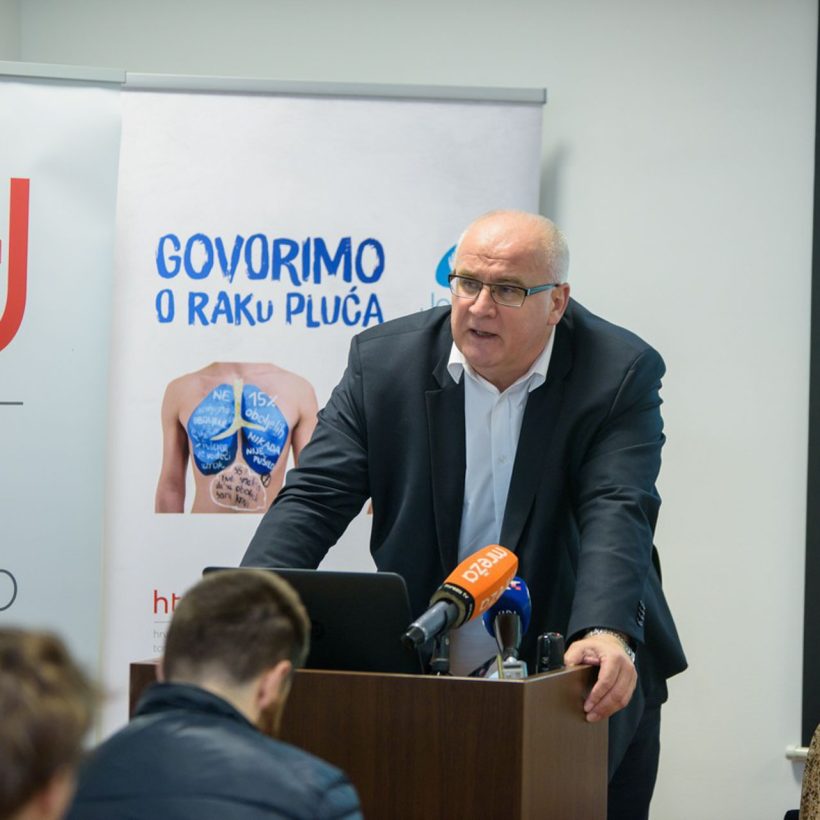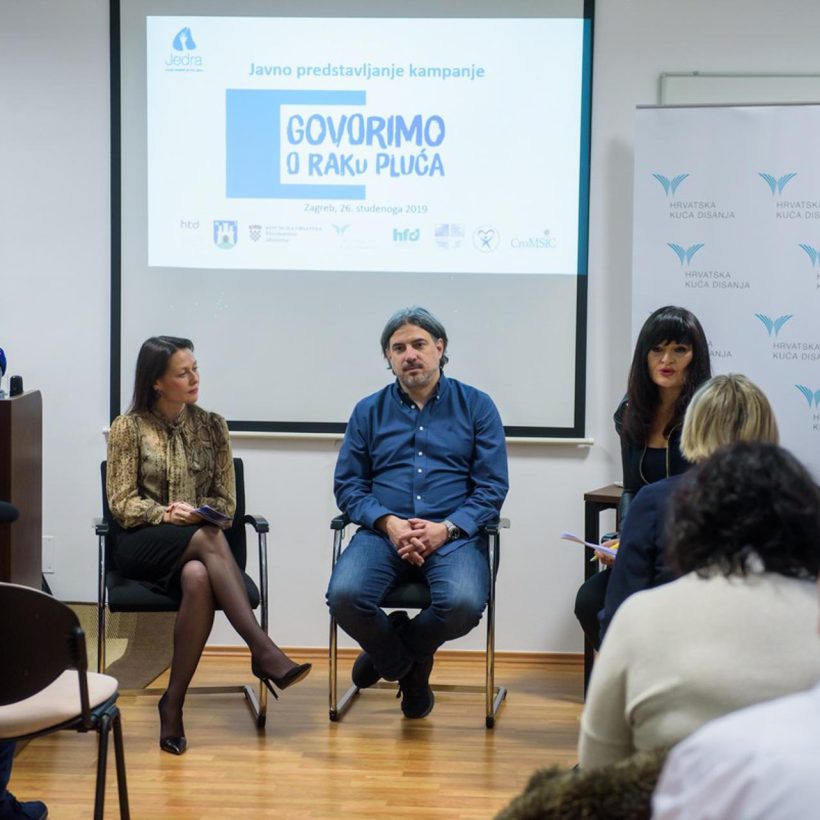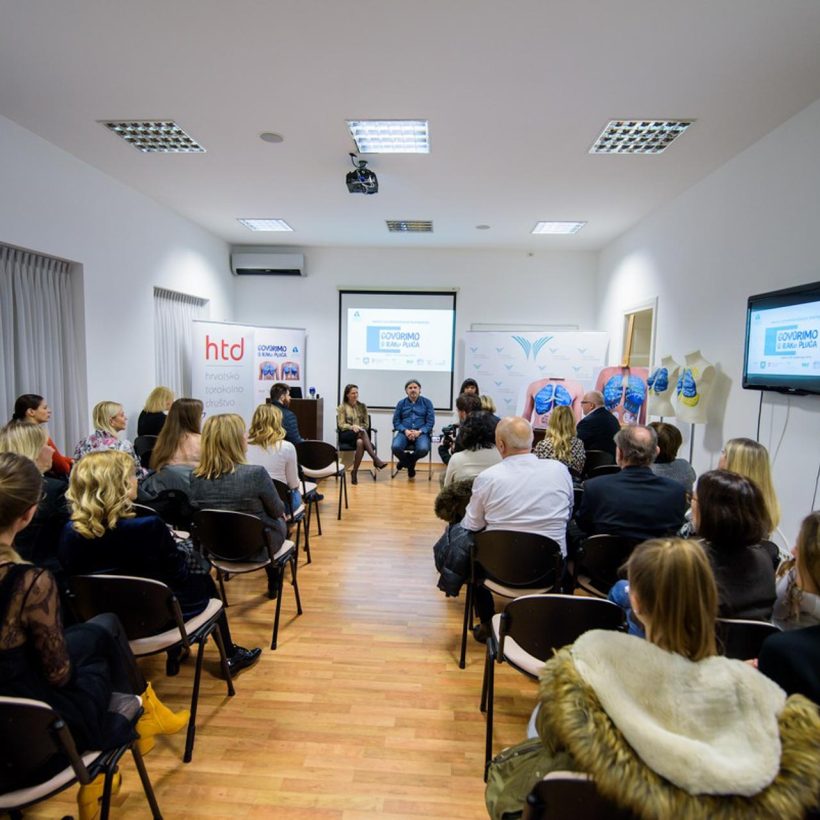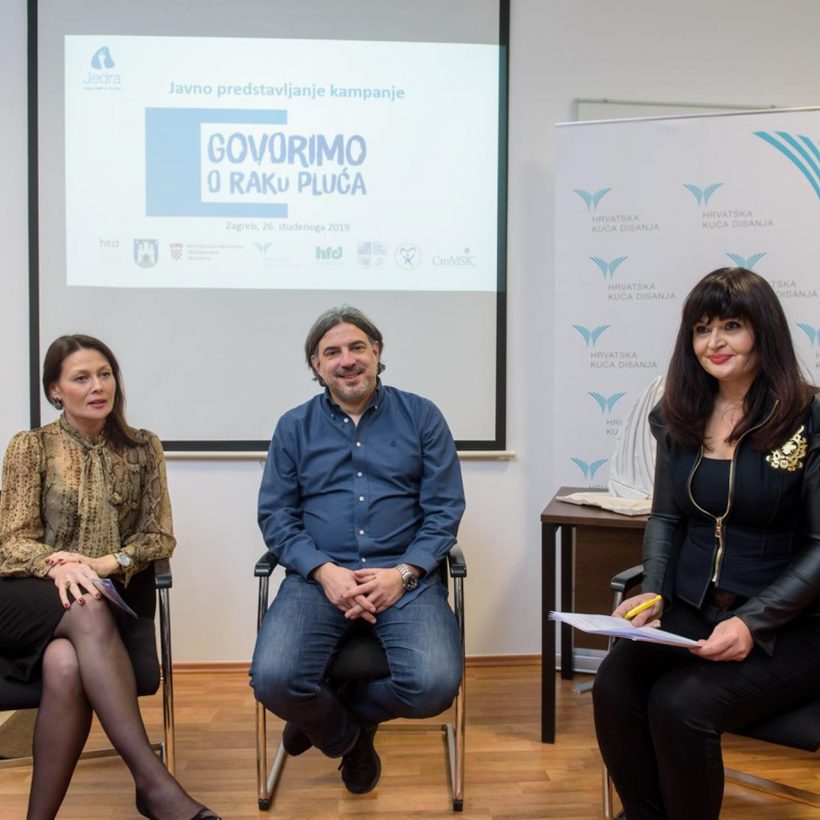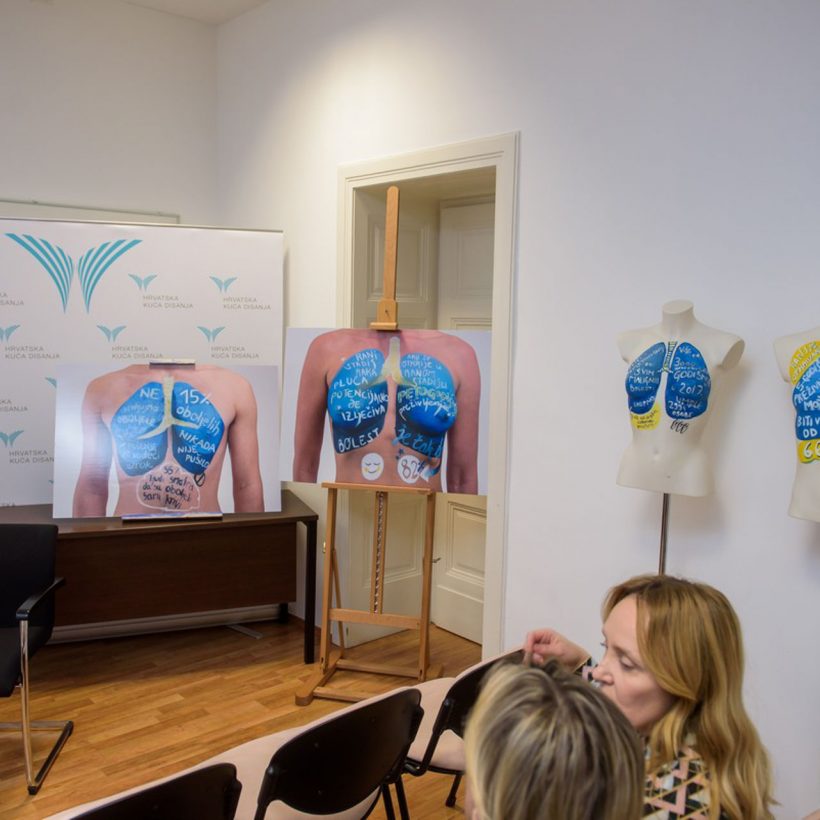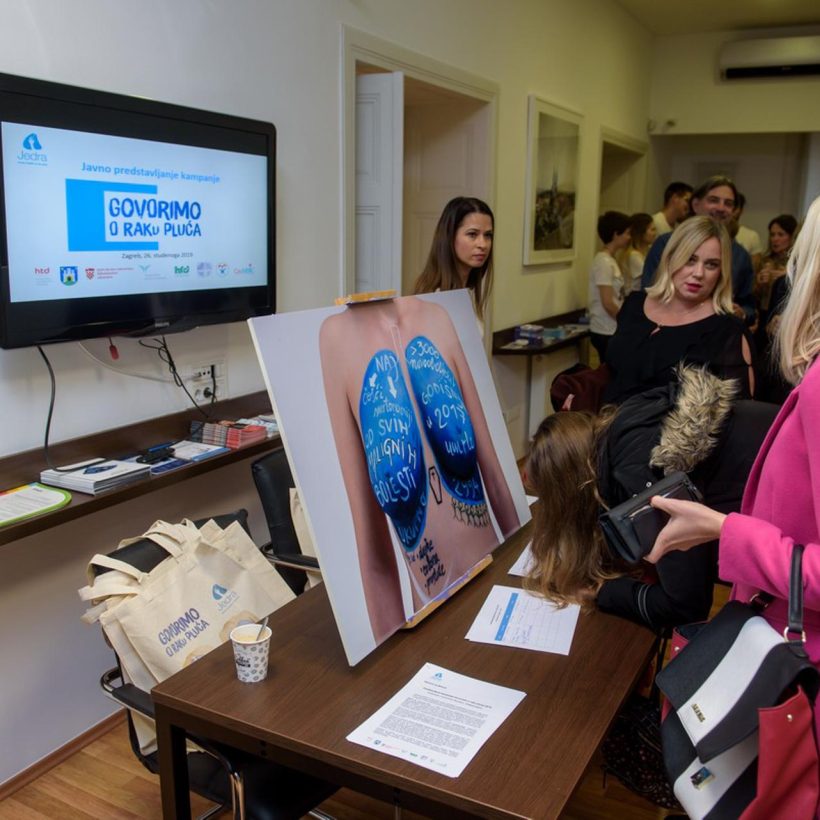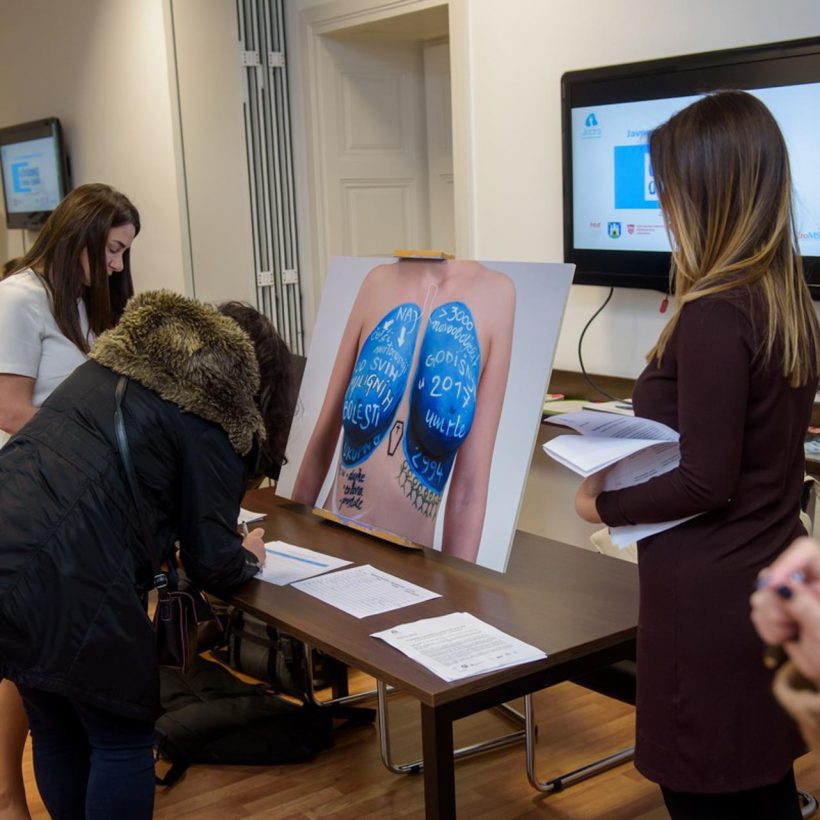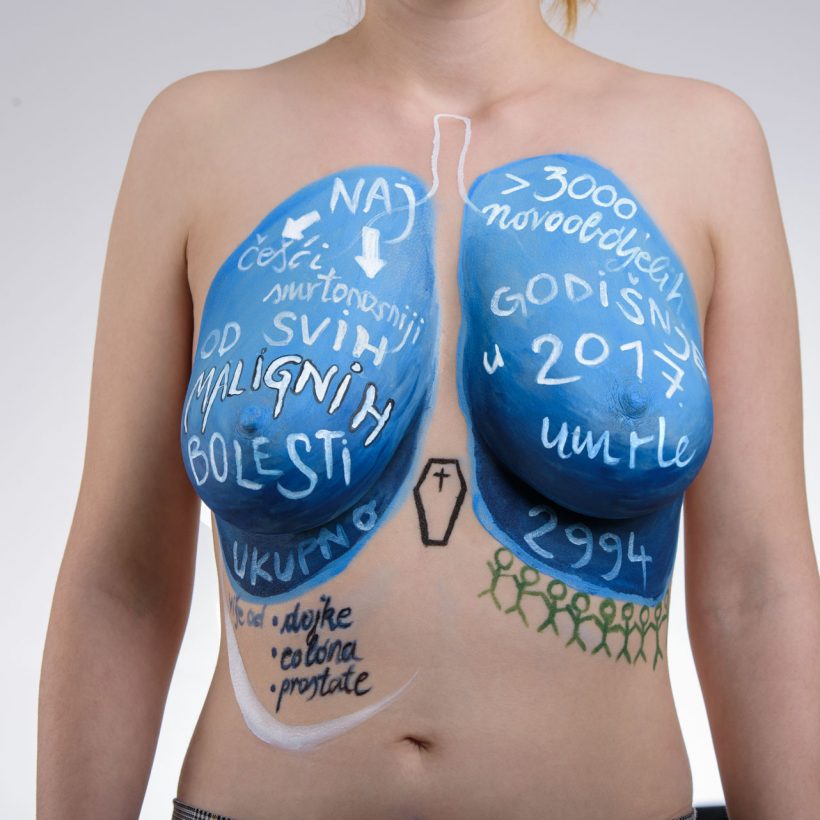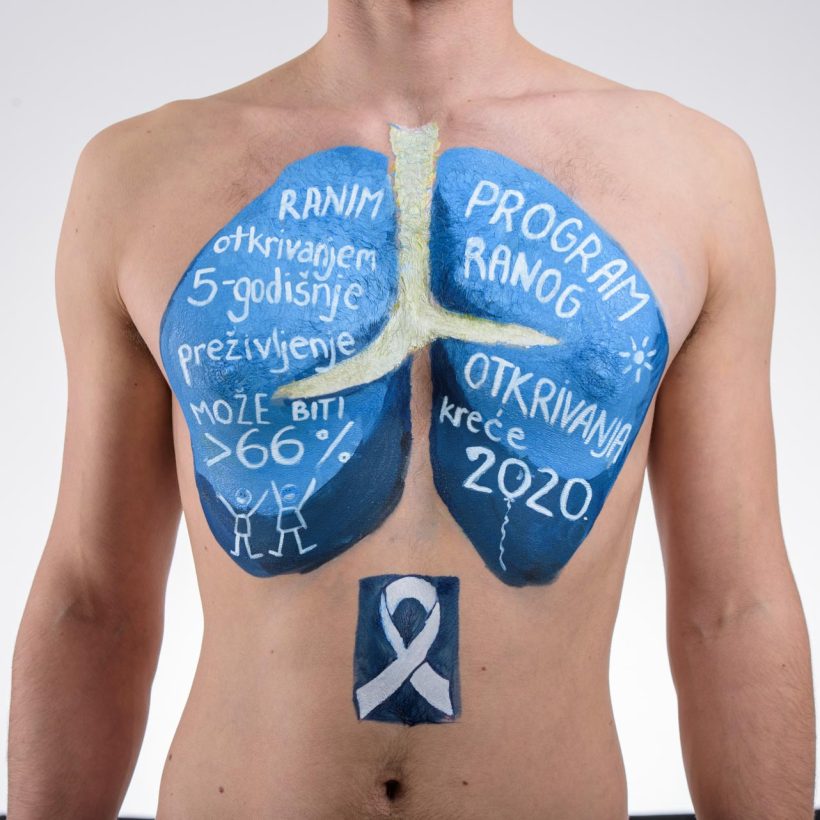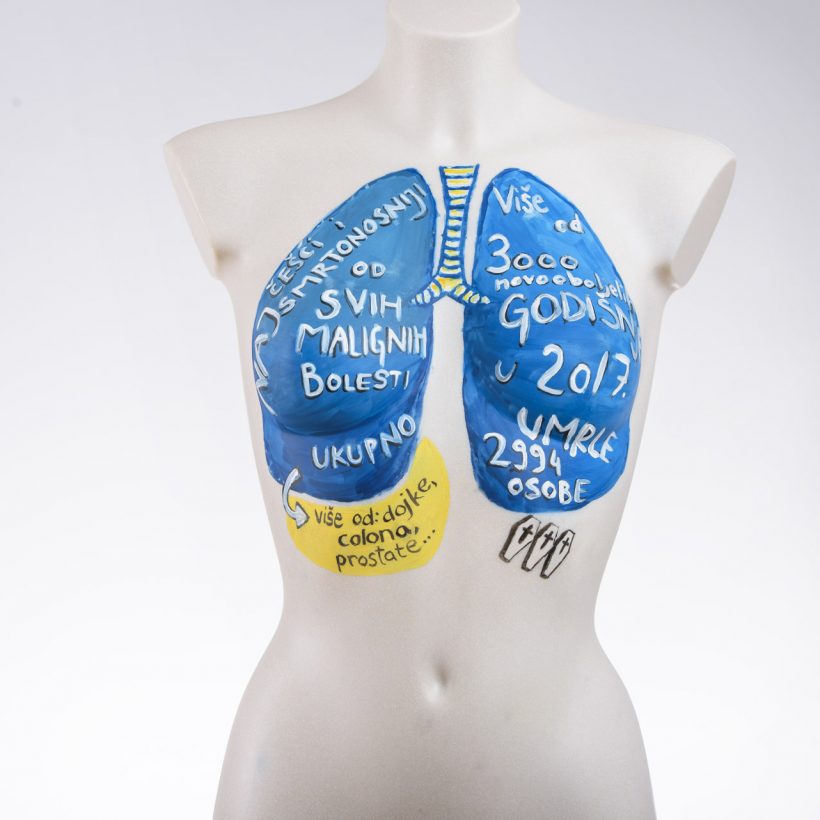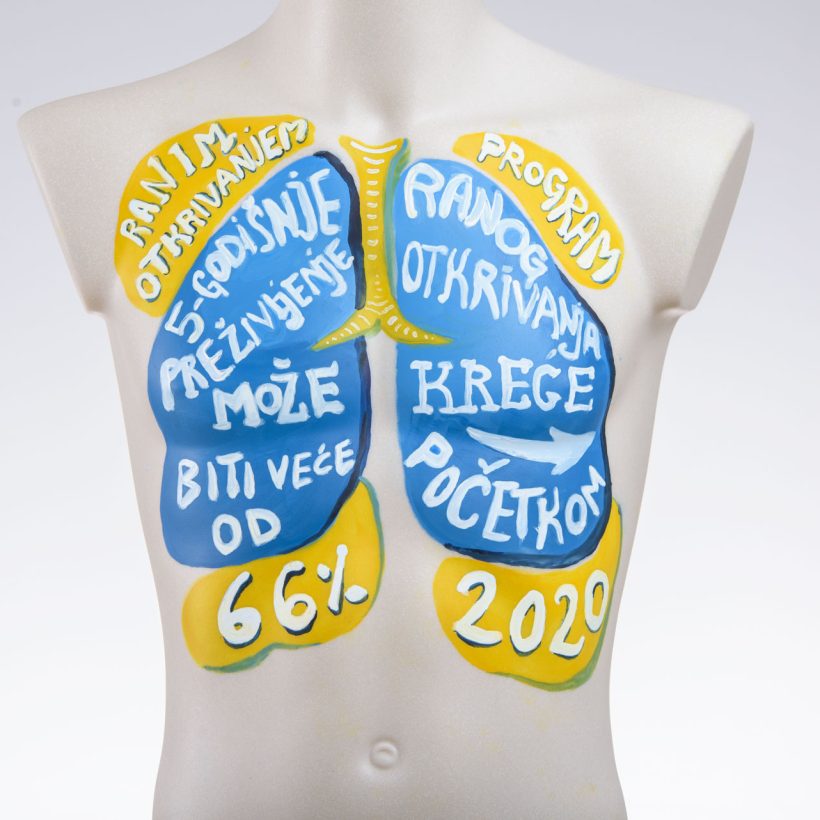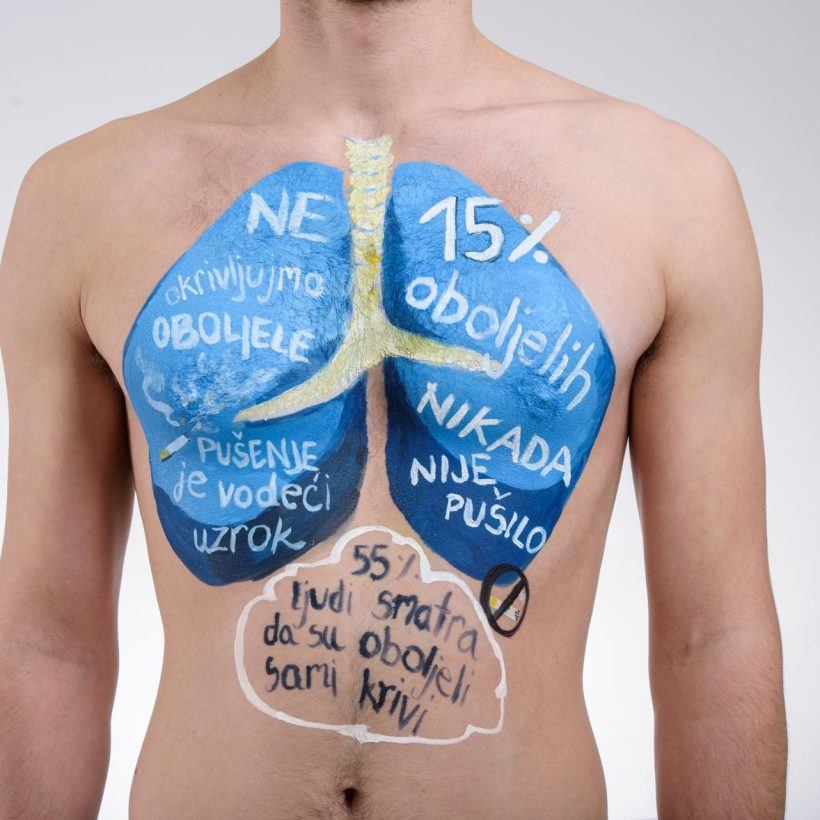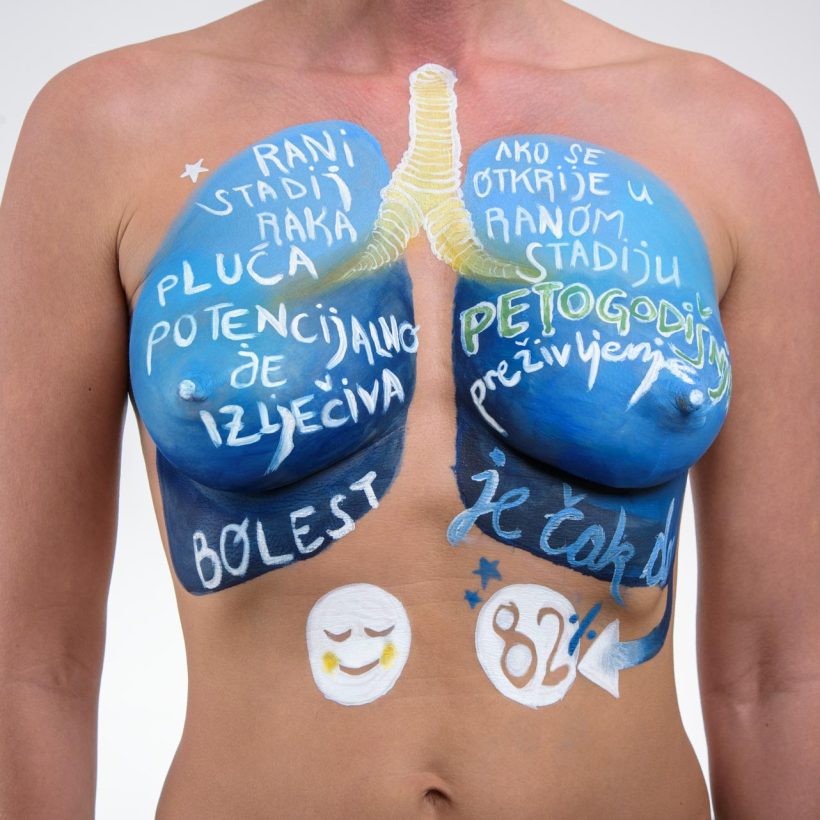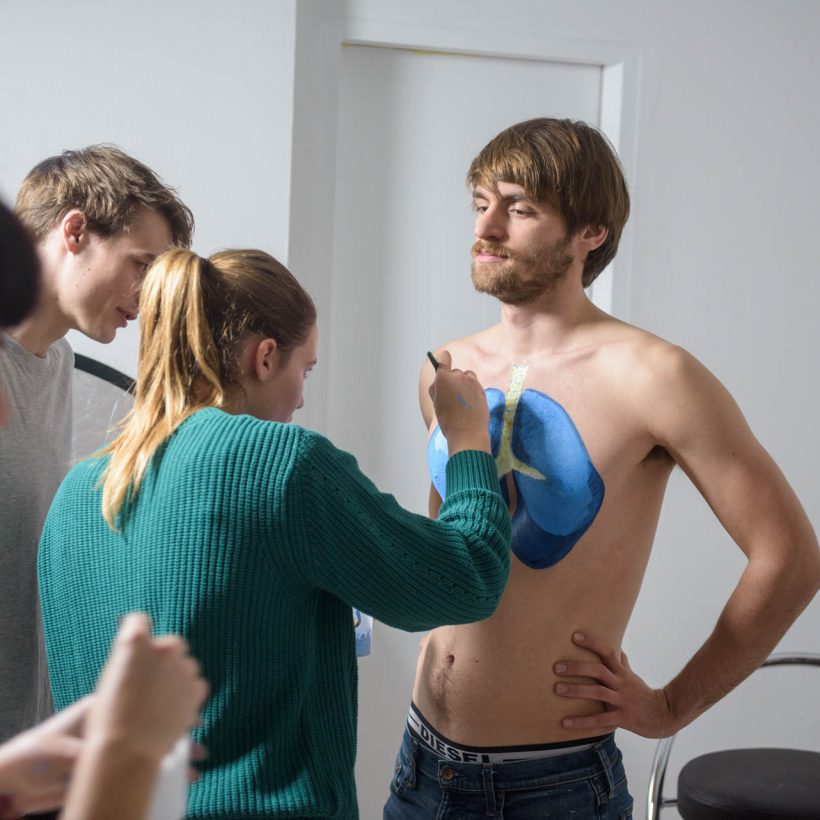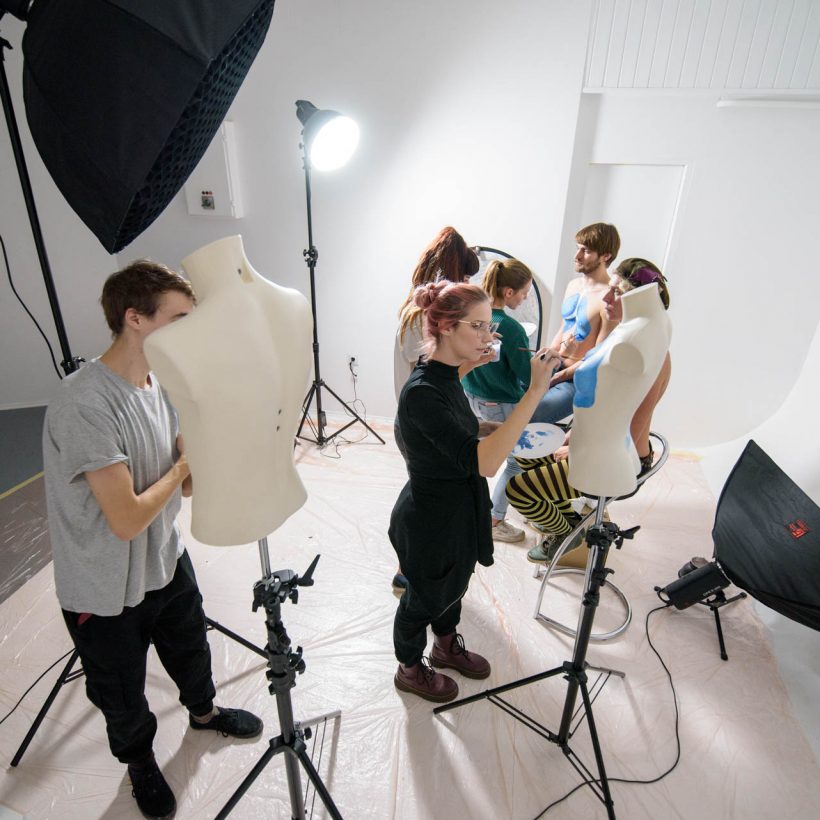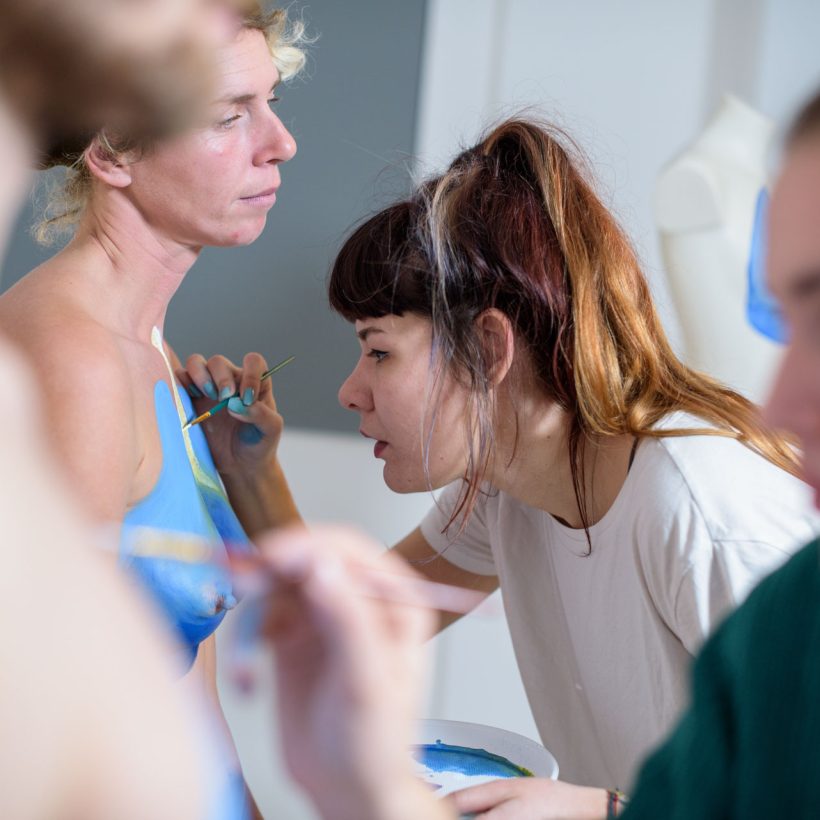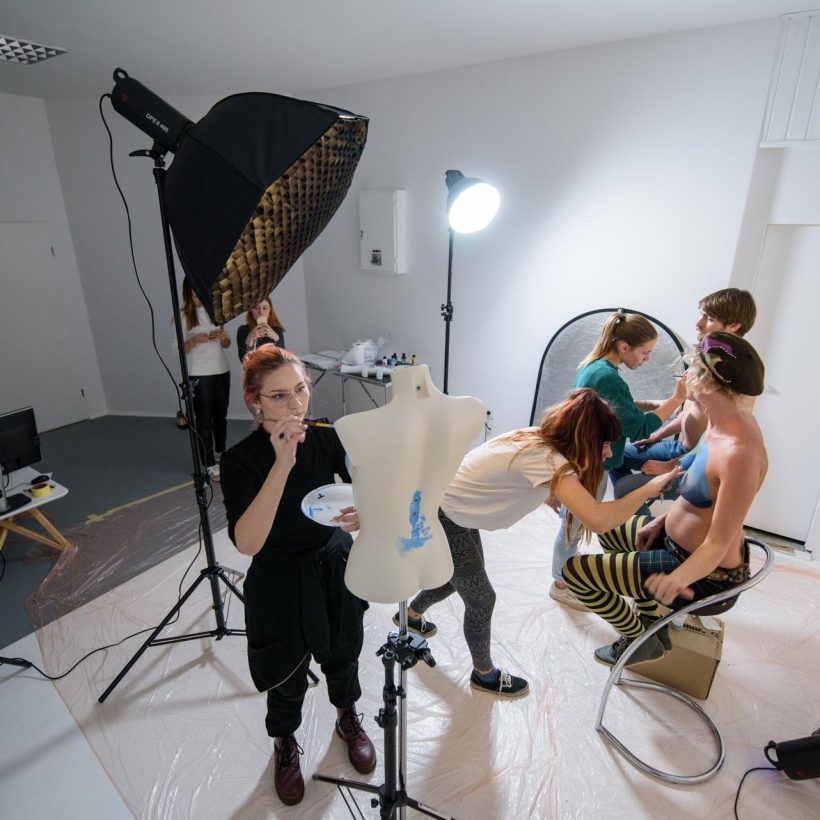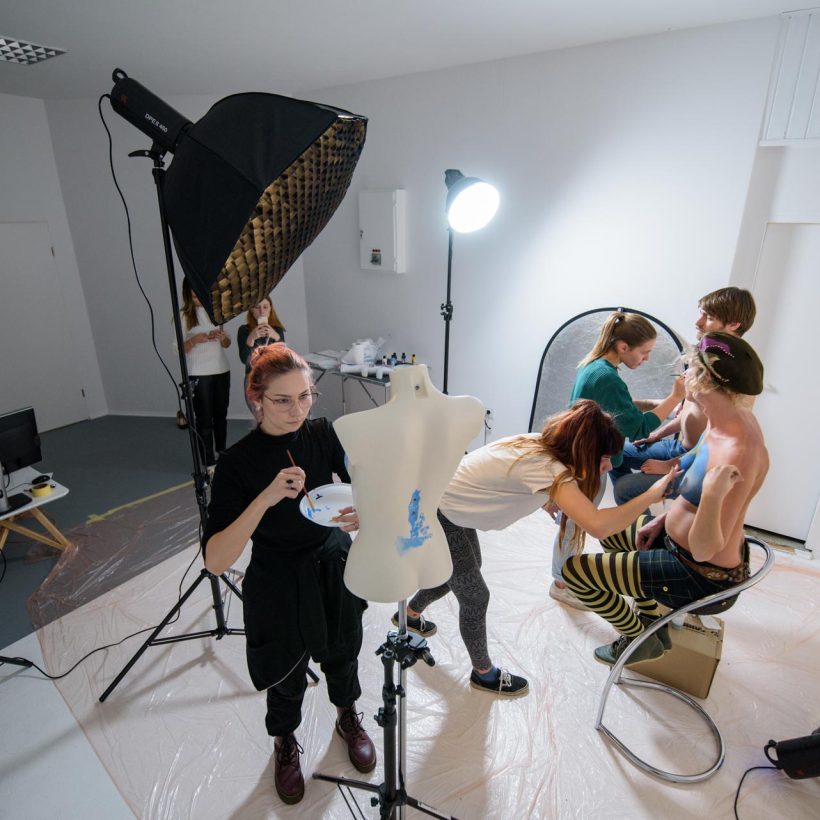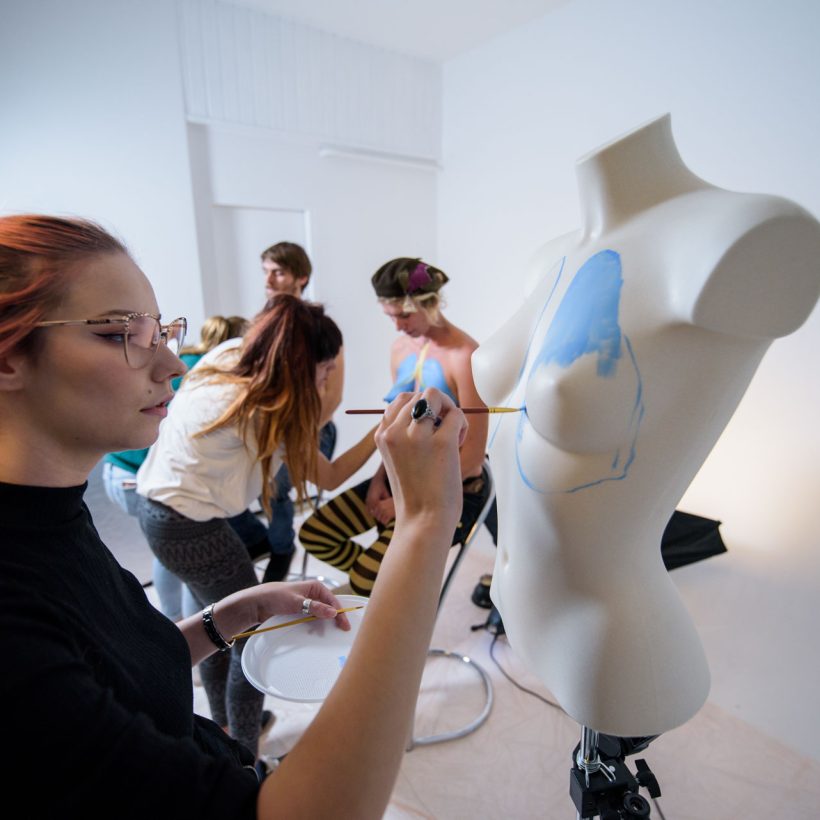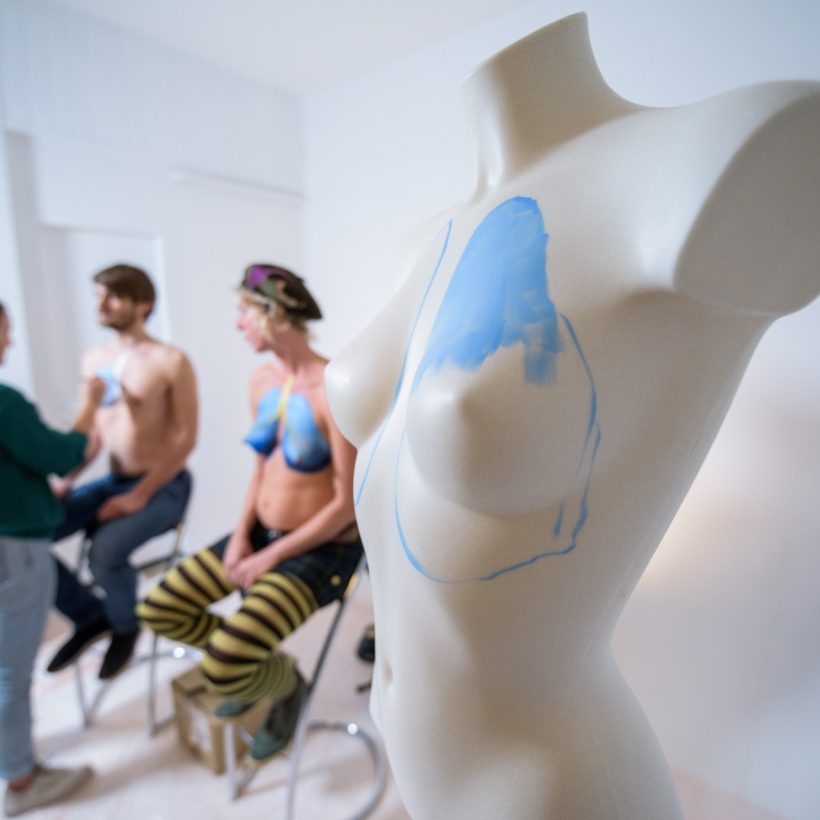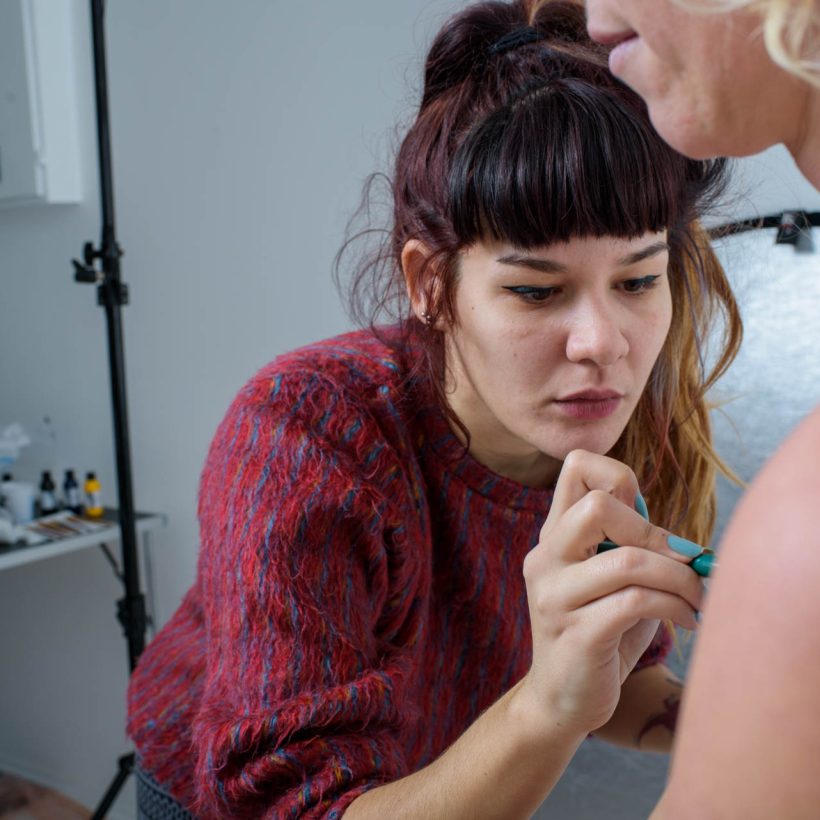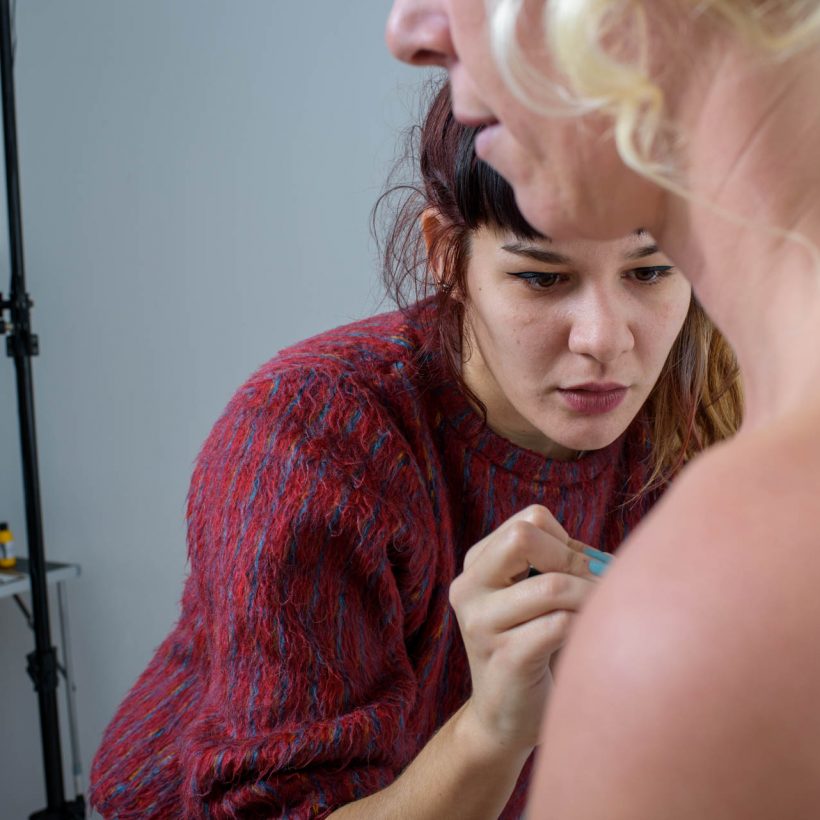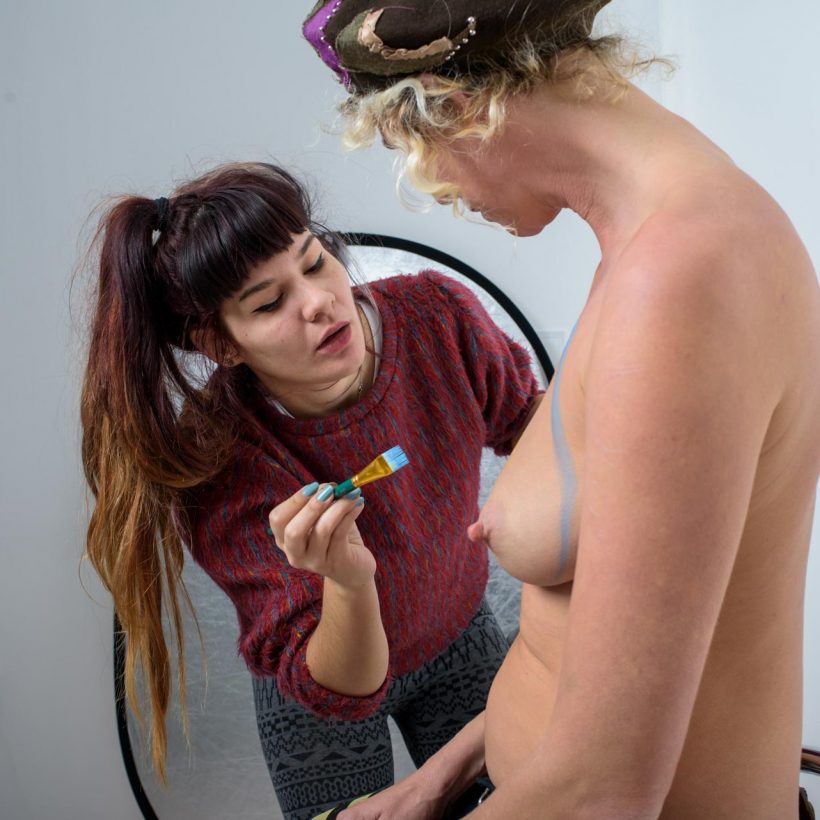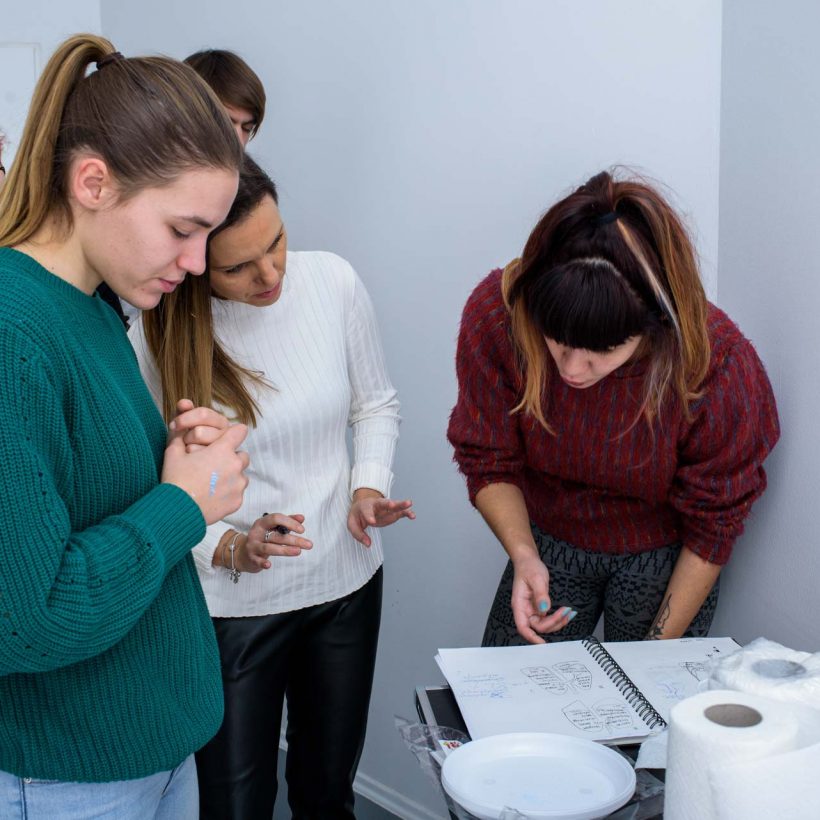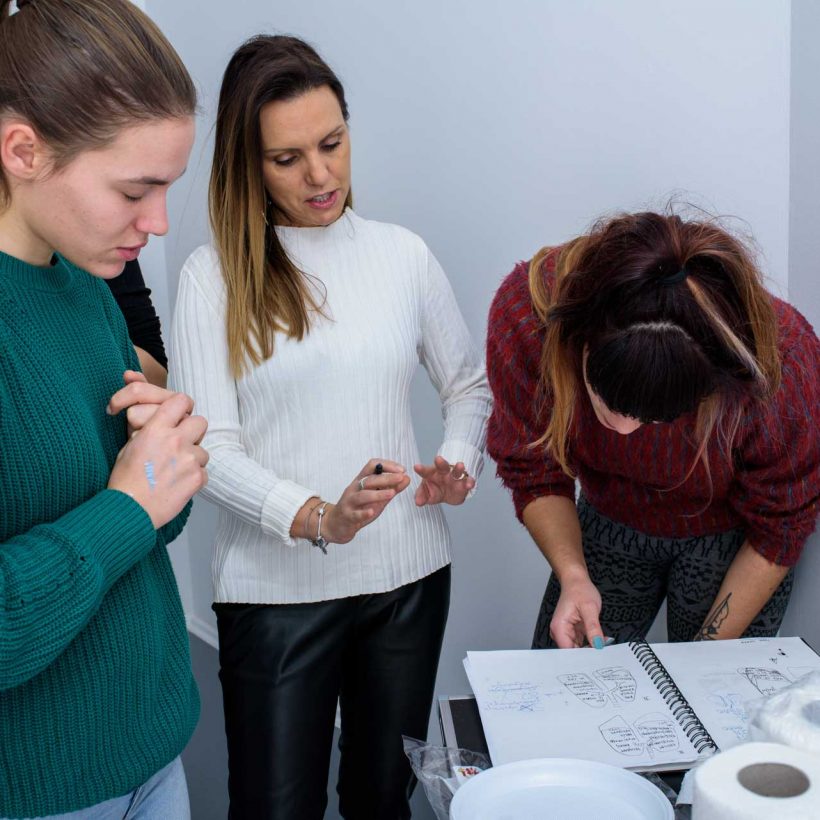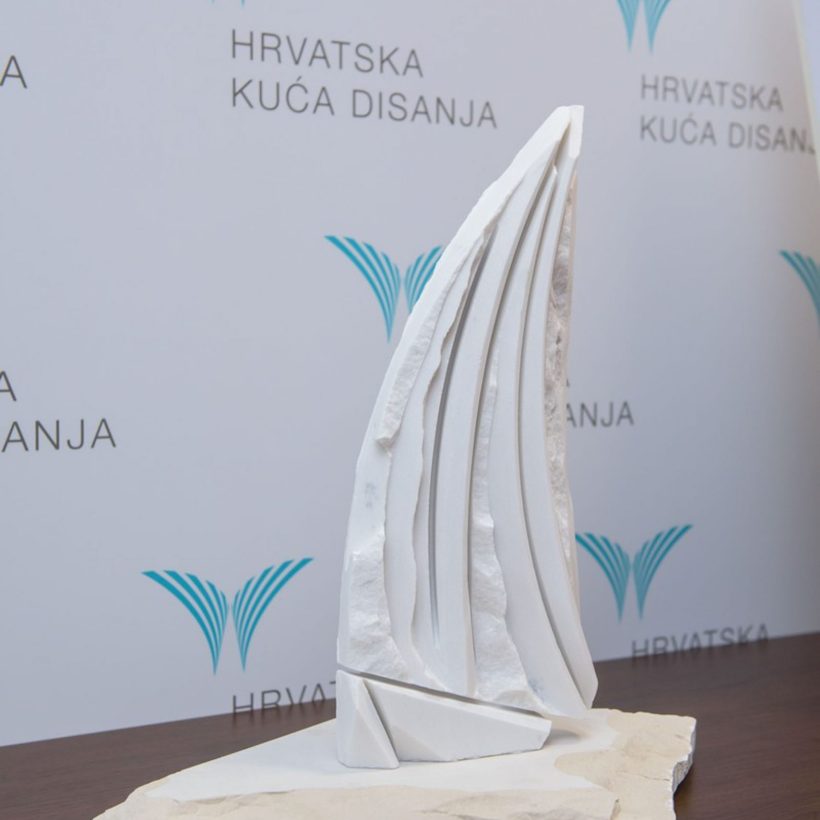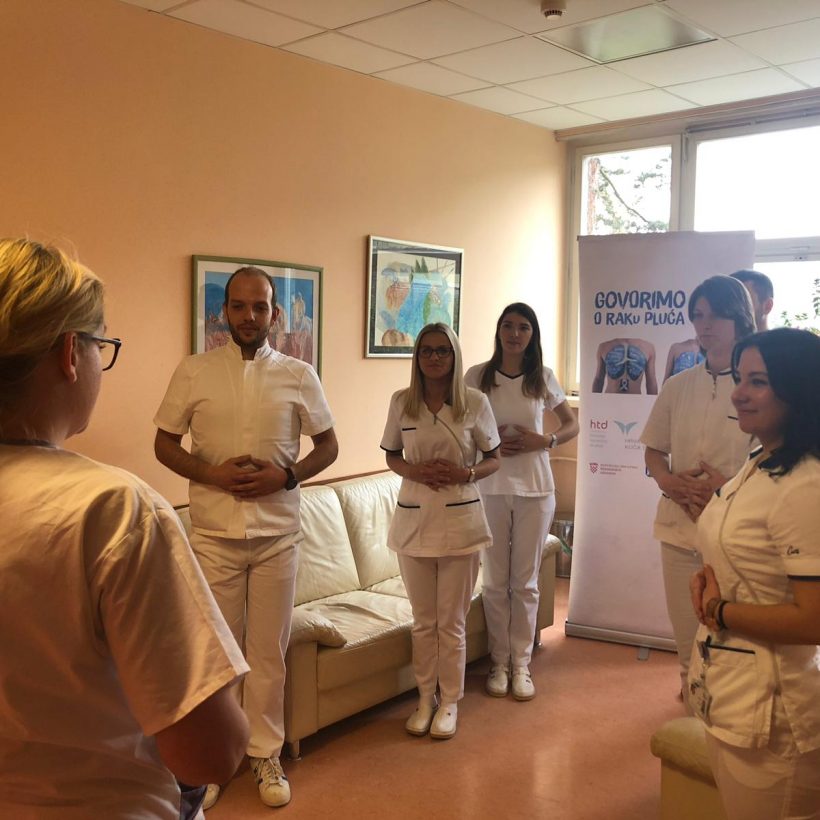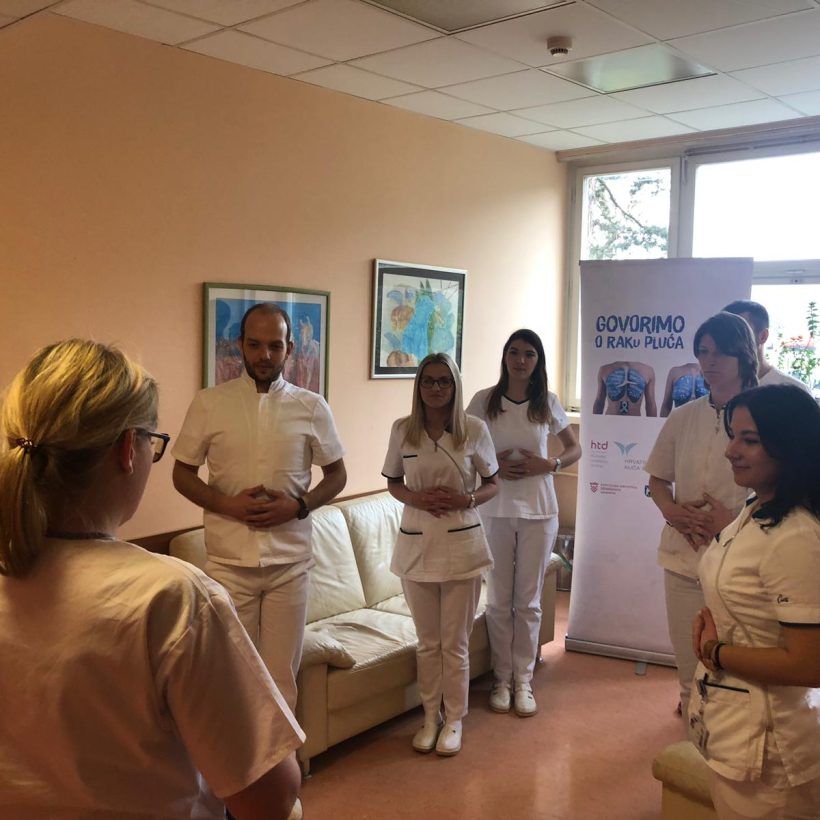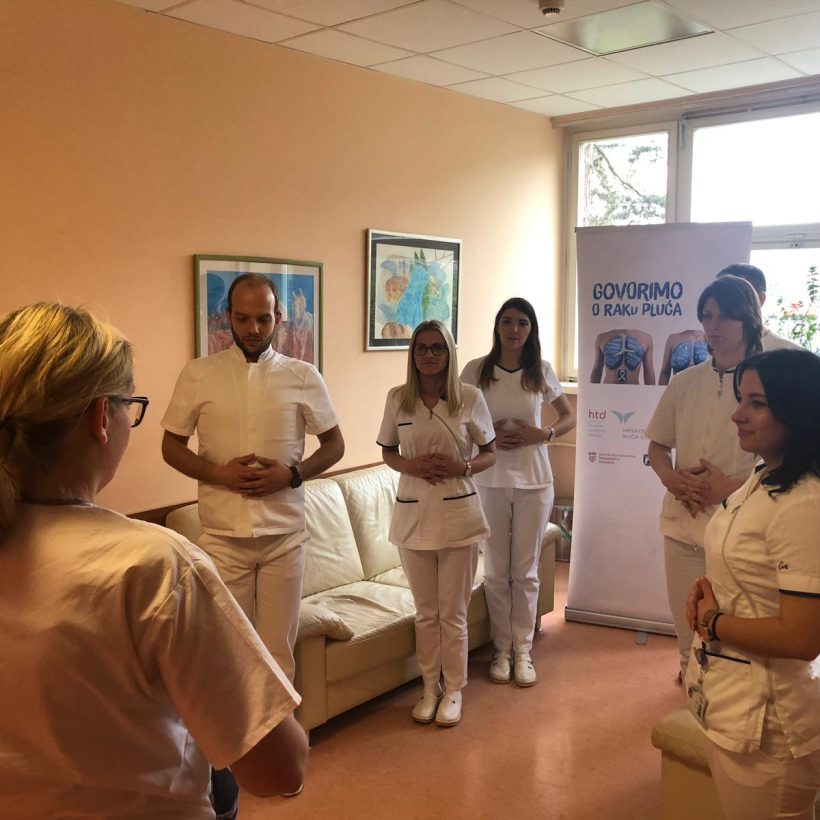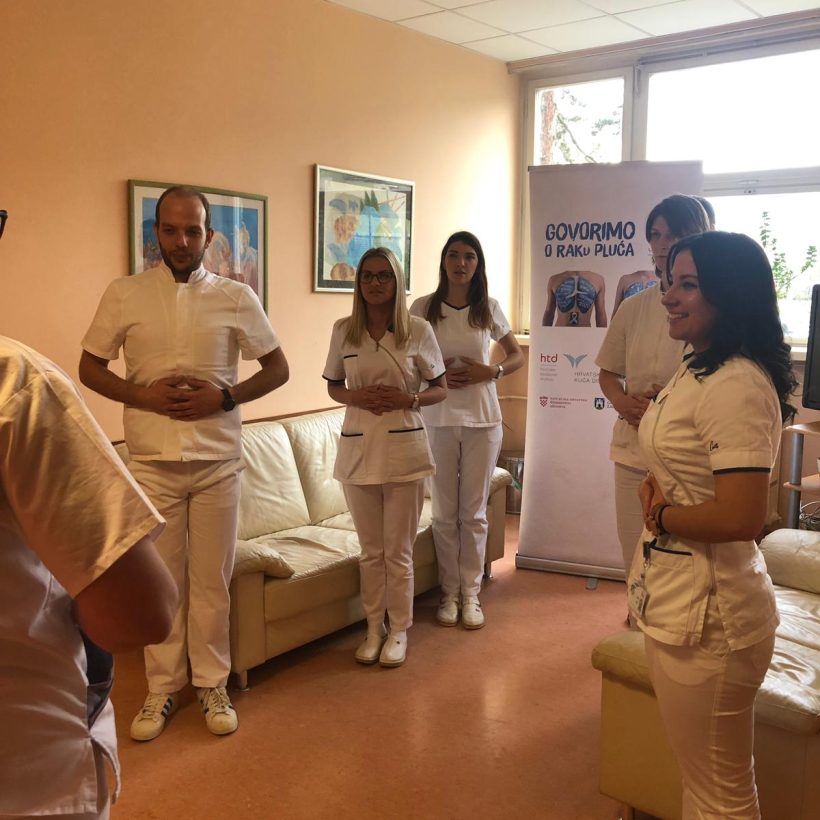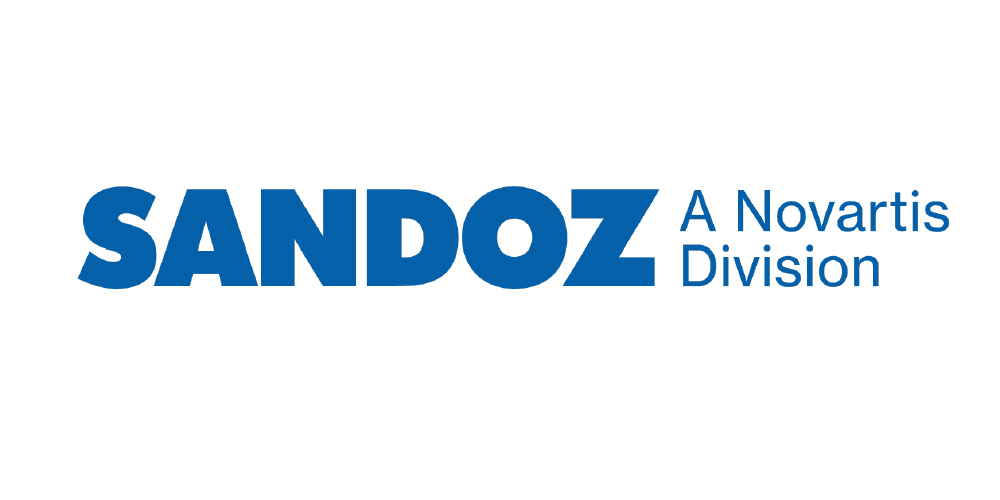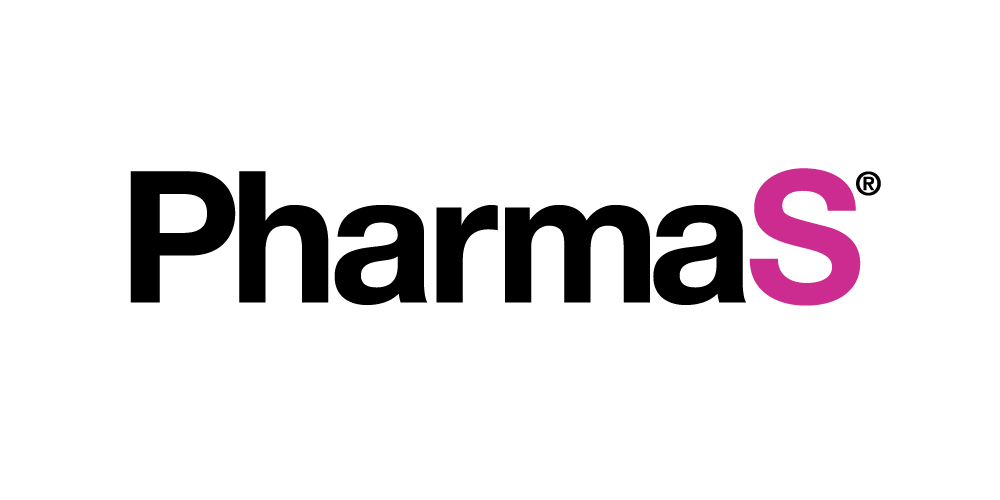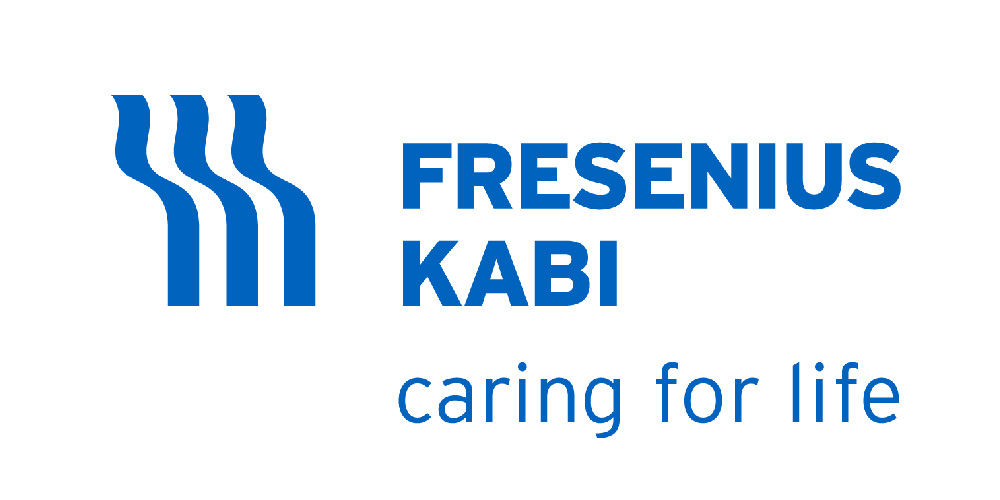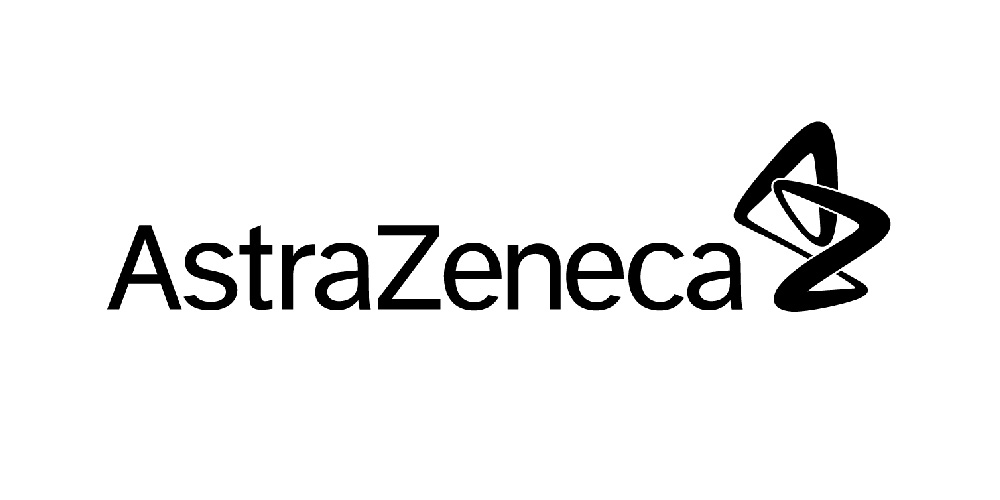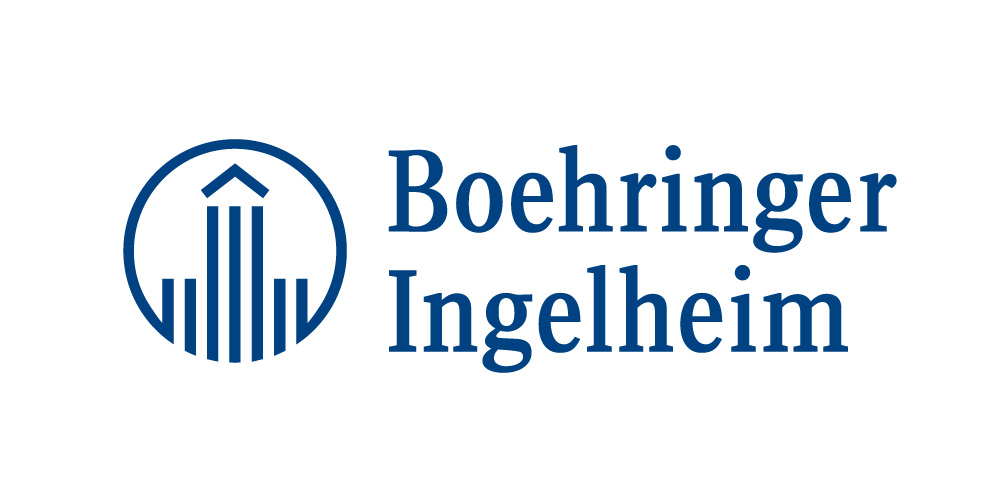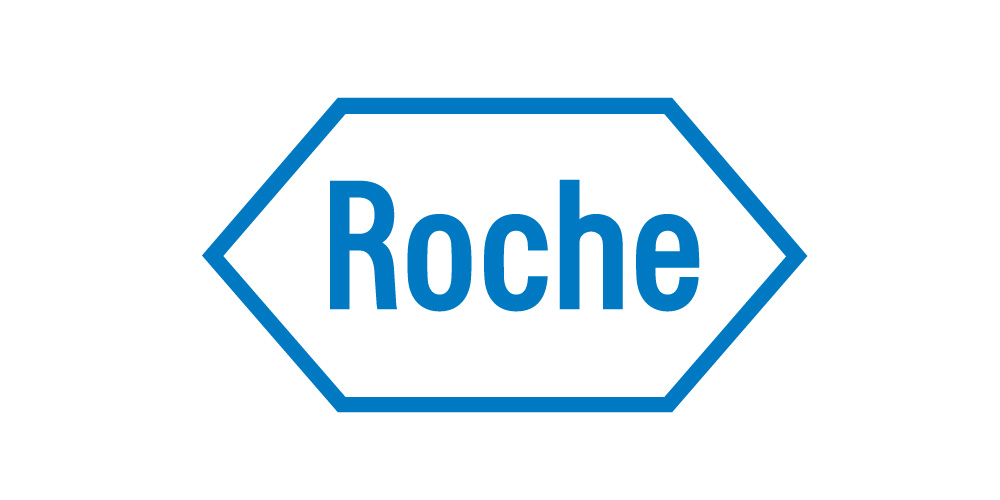On awareness in the fight against lung cancer – with bodypainting
The Lung Cancer Association “Jedra” presented the “Let’s Talk About Lung Cancer 2019″ campaign, whose main visual this year is bodypainting of key messages on live models, and a video of proper breathing was also recorded and is available on the Association’s website.
Zagreb, November 26, 2019. – As part of the traditional celebration of the month of fighting lung cancer, the Lung Cancer Association “Jedra” held a public presentation of the “Let’s Talk About Lung Cancer 2019″ campaign. The campaign is being launched with the aim of educating and informing the public and empowering patients and their families during their illness. The goal is to promote the importance of health by involving young people in projects, but also to raise public awareness about the importance of proper breathing for overall health. In addition, the campaign aims to influence disease prevention by highlighting the harmful effects of smoking, even passive smoking, as well as the opportunity to participate in the free No Smoking School program.
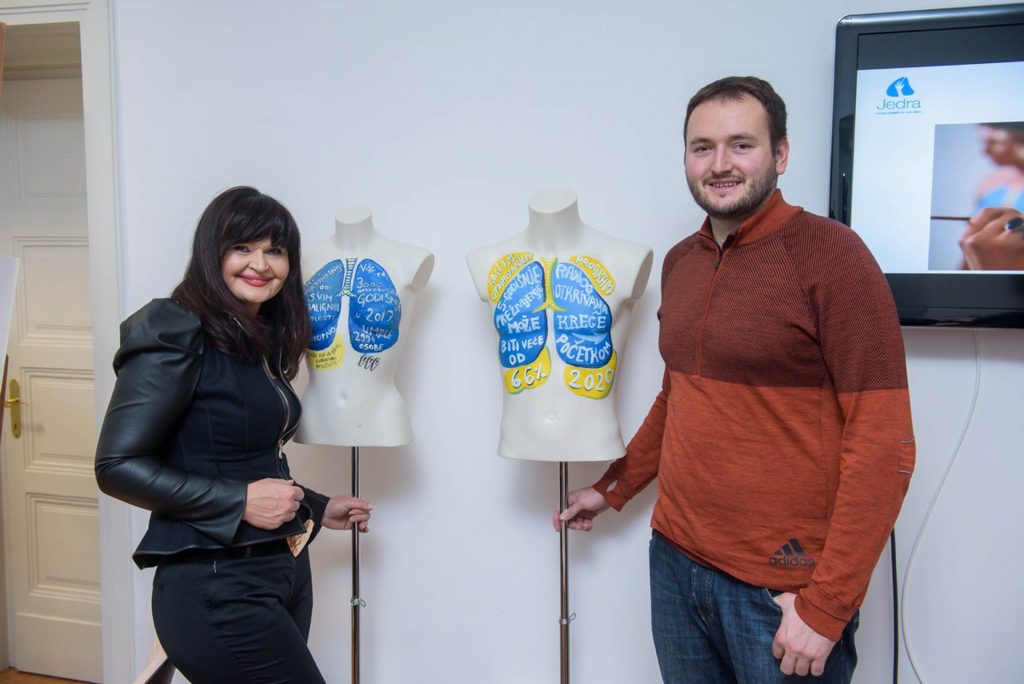
The campaign was presented by Sandra Karabatić, Master of Nursing, President of the Jedra Association, who stated on that occasion: “Our goal is to raise public awareness about the importance of health, to point out risk factors in the fight against lung cancer, but also the importance of prevention, such as quitting smoking and the importance of proper breathing. For the past few years, the Jedra Association, in cooperation with several kindergartens and one primary school, has been educating preschool and early school-age children about the importance of breathing and learning about all the harmful factors that affect the health of the respiratory system, but also the entire body. The sufferers should not be blamed for this disease, but according to a survey conducted by the LuCE association, as many as 55 percent of people believe that the sufferers are to blame for their disease. Although smoking is the most significant risk factor for lung cancer, we should not ignore the fact that 15 percent of those affected have never smoked.”
The campaign is being launched with the support of the Croatian Thoracic Society, the City of Zagreb, the Ministry of Health, the Croatian House of Breathing Foundation, the Croatian Chamber of Nurses, the Croatian National Nursing Association, the Croatian Pharmaceutical Society and the International Medical Students’ Association Croatia.
Prof. Dr. sc Marko Jakopović, Head of the Department of Lung and Mediastinal Tumors at the Jordanovac Clinic for Pulmonary Diseases, announced that the Lung Cancer Early Detection Program will start in January 2020, with examinations of risk groups being performed using low-dose CT devices.
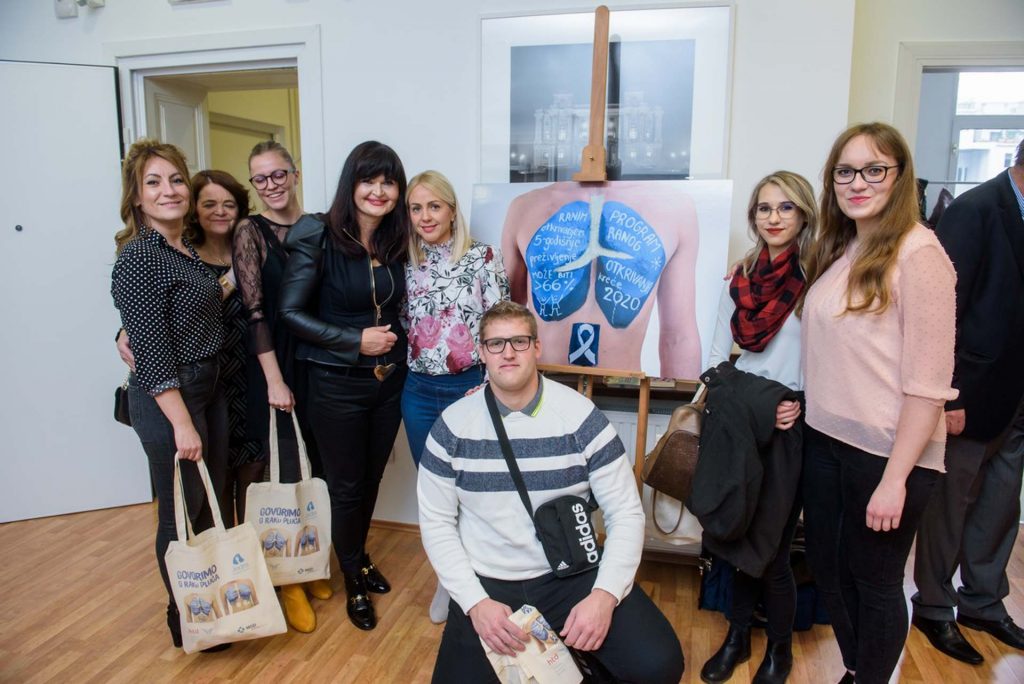
Lung cancer is one of the most common malignant diseases, affecting various groups of people, including young people and non-smokers, and is also the leading cause of death among all cancers in women and men. With the development of medicine and technology and constant awareness-raising, this trend is changing, and statistics still show a positive shift.
“It is still too early to talk about the real results of treatment with so-called targeted drugs, but we should still strive to provide the best possible, or at least available, treatment methods. It is the latest diagnostic and therapeutic options that give us hope that lung cancer will also become a chronic disease,” emphasized Prof. Dr. Marko Jakopović.
Dr.sc. Latinka Basara, univ.spec.clin.psych, presented the No Smoking School program, which is based on the application of a psychotherapeutic-educational model of smoking cessation, within which the participants are tried to be helped to quit smoking.
Let us recall that, according to data from the Croatian Cancer Registry from 2015, slightly more than 3,000 people in the Republic of Croatia were diagnosed with lung cancer. Lung cancer, if detected at a very early stage, is a potentially curable disease with a five-year survival rate of 66 to 82 percent. However, the five-year survival rate for advanced lung cancer in our country is up to 10 percent.

